Hello and welcome to Work Week, the podcast where we tackle one big question about the rapidly evolving workplace, explore what the research says about the issue, and explain what it all means for you.
I’m Dr. Gabby Burlacu, Senior Manager at The Upwork Research Institute. What you’re hearing is a digital proxy of my voice created by our team with the help of AI.
Our big question for this week is: How can AI help managers become better mentors?
In today’s rapidly changing workplace, manager-employee relationships are more important than ever — especially in a hybrid, distributed workplace. And as organizations embed AI into every part of their workflows, new ways to support and scale mentorship are being created. But these new modes of work also carry the risk of becoming too reliant on AI tools. So, how do managers and leaders strike a balance between gaining the benefits of AI, while avoiding its downsides?
The answer, in part, is in implementing AI tools both thoughtfully and carefully. In episode nineteen of Work Week, What Role Do Middle Managers Play in an AI-Driven Workplace?, we discussed how recent Gallup research found that, globally, manager engagement decreased more significantly than the engagement of individual contributors year-over-year. Additionally, our own data from The Upwork Research Institute found that middle managers reported significantly more burnout than individual contributors.
Managers are still required to spend time on administrative, repetitive, and low-impact work — such as project updates, performance documentation, and juggling dozens of asynchronous conversations across platforms. They’re also instrumental in helping their teams navigate ongoing disruption and shifting business needs — including the implementation of AI tools and other emerging technology.
This leaves less time for what actually moves the needle in team development — such as the one-on-one coaching, feedback, guidance, and advocacy that define strong mentorship.
Properly integrating the right AI tools can help relieve some of this burden. AI can summarize meetings, analyze goals, auto-draft feedback, and even recommend development plans based on an employee’s history and interests. But — and this is the heart of today’s episode — even the best AI tools can’t replace the human relationships at the heart of mentoring.
I recently teamed up with Allie Blaising, a Senior User Experience Researcher at Upwork, to discuss these issues and more with Dr. Jenna Butler, Principal Applied Research Scientist at Microsoft and a leading voice on human-AI collaboration. Dr. Butler was kind enough to share many of her personal views, gleaned from a career of developing and observing AI tools in action.
And from Dr. Butler’s perspective, when considering how to integrate AI into a workflow, “Rather than asking, 'What tasks can AI do instead of humans?' we should be asking, 'What new things can humans do with AI that were never possible before?'" That shift — from replacement to amplification — is critical for building effective, ethical, and inclusive human-centric workplaces.
Dr. Butler leads The New Future of Work initiative at Microsoft, and in her work, she emphasizes that AI is about more than productivity — it’s about possibility. When AI is used effectively, it frees up mental and emotional capacity for managers to focus on the priorities that truly matter — empathy, coaching, mentorship, and developing people for the long haul.
So what does this look like in practice?
Let’s say you’re a manager with a five-person team. Instead of spending your Friday afternoon writing individual feedback notes, you could prompt your AI assistant to pull in weekly status updates, highlight progress against goals, and draft a performance summary. You would still review and tailor the feedback — but you would have more time to actually deliver it thoughtfully. Using AI for the initial analysis could also free up time to meet with team members one-on-one to talk through development opportunities and help team members map out their career goals
This is an impactful use of AI — offload the busywork, and double down on relationship-building.
But as Dr. Butler warns, workers need to be careful not to fall into the trap of overrelying on AI tools. When people start to feel that AI is emotionally intelligent, they can trick themselves into believing the AI is truly intelligent. But it isn’t. Dr. Butler cautions, "A large language model isn’t a cheaper version of a human. It doesn’t have emotions, intelligence, or lived experience." But it often sounds like it does. It can sound — warm, empathetic, and even funny.
And this can lead to a risky dynamic — in which people outsource more than tasks, and begin to outsource their judgment. In this dynamic, employees can start trusting AI more than they trust their managers. In fact, as we highlighted in episode eighteen of Work Week, How Is AI Changing Workplace Connection?, nearly two-thirds of respondents in our recent survey said they trust AI more than their coworkers. Additionally, sixty-four percent said they have a better relationship with AI than with their teammates.
Especially when put in the light of Dr. Butler’s cautions, these findings highlight the need for organizations to prioritize maintaining trust among team members. Workers should be encouraged to continue overseeing uniquely human tasks and to avoid using AI in ways that feel emotionally fraught.
Dr. Butler also emphasized the importance of building AI systems and designing tools that encourage critical thinking rather than following instructions passively. Tools should be designed to ask clarifying questions, offer alternate perspectives, and push users to engage more deeply with tasks.
To this end, Dr. Butler’s team has adopted an Overreliance Framework, helping them better evaluate whether large language model-based tools are unintentionally encouraging users to disengage or place too much trust in the system.
This approach to building and interacting with AI systems can more effectively support mentorship — by helping humans become better at what only they can do and avoid an overreliance on AI tools.
This brings us to one of the biggest opportunities AI presents in the mentorship space: democratization.
Dr. Butler pointed out in our conversation that generative AI has the power to offer coaching, feedback, and support to people who may never have had access to it before. Not every worker has a supportive manager. Not everyone can afford a personal coach. AI can help fill these gaps, offering scaffolding and guidance for those navigating complex challenges on their own.
But again — AI should be seen as baseline support, not a substitute for human guidance.
An AI tool may be able to simulate empathy, but this doesn’t mean it can build trust. And mentorship, at its core, is about trust. It’s about someone seeing your potential, advocating for your growth, and holding space for your doubts.
If organizations try to replace personal relationships and trust with chatbots, they may unintentionally deskill managers and dehumanize workplaces.
These risks highlight the need for building AI literacy into organizations. Workers need help understanding what the tools are, what they’re good at, and where they fall short. Dr. Butler’s work reminds us that the human-AI boundary is shifting fast — but the ability to design thoughtful, ethical, and effective partnerships is what will determine how useful AI can become, and how easily its pitfalls can be avoided.
As AI handles more technical, repetitive tasks, human differentiators become more valuable. Skills like mentorship. Empathy. Collaboration. Motivation. Conflict resolution. These are capabilities that help teams thrive.
Highlighting their importance in the future of work, Dr. Butler calls these "survival skills," not soft skills. And she’s right. These are the qualities people will look for in leaders. This goes beyond how fast leaders can execute to how deeply they can connect.
If you’re ready to put this into practice, here’s a simple, three-step process for becoming a stronger mentor — with AI in your toolkit, but humanity at the center:
First, audit your time. Look at your calendar and identify where your energy is going. Are you spending hours writing reports or updating dashboards? Find one or two recurring tasks that AI can automate or accelerate.
Second, create intentional space. Reinvest the time you save into structured mentorship. Block off recurring one-on-ones that focus solely on development, not simply status updates. Use AI summaries to catch up on workstreams so you can focus directly on individual team members.
Third, lead with curiosity and empathy. Use your time together to ask team members thoughtful questions: What are they learning? Where do they feel stuck? What’s a skill they want to develop this quarter? Then follow up. AI can remind you to check in, but only you can follow through with consistency and care.
Let’s end the episode as we always do — with an action step you can implement right away and a reflection question to consider.
Here’s your action step for this week: Use AI to streamline one of your routine leadership tasks — such as summarizing meeting notes or creating a progress snapshot for your team. Take the time you saved and schedule one mentorship conversation. No agenda. Simply ask your team member what they need, what they’re learning, and how you can support them.
Let the technology handle the repetitive work while you handle the interpersonal work.
For this week’s reflection question, ask yourself: Are you using AI to strengthen mentorship across your workforce — or is it unintentionally creating distance throughout your team?
The future of mentorship isn’t about machines taking over. It’s about people stepping up and building stronger, more empathetic relationships. With the right tools and also with the right mindset.
Thank you for listening to this episode of Work Week. I’m Gabby Burlacu and if you found the information helpful, share the episode with a colleague or leader in your network. And be sure to subscribe for more data-backed insights into the future of work.







.png)
.png)
.png)
.png)
.png)
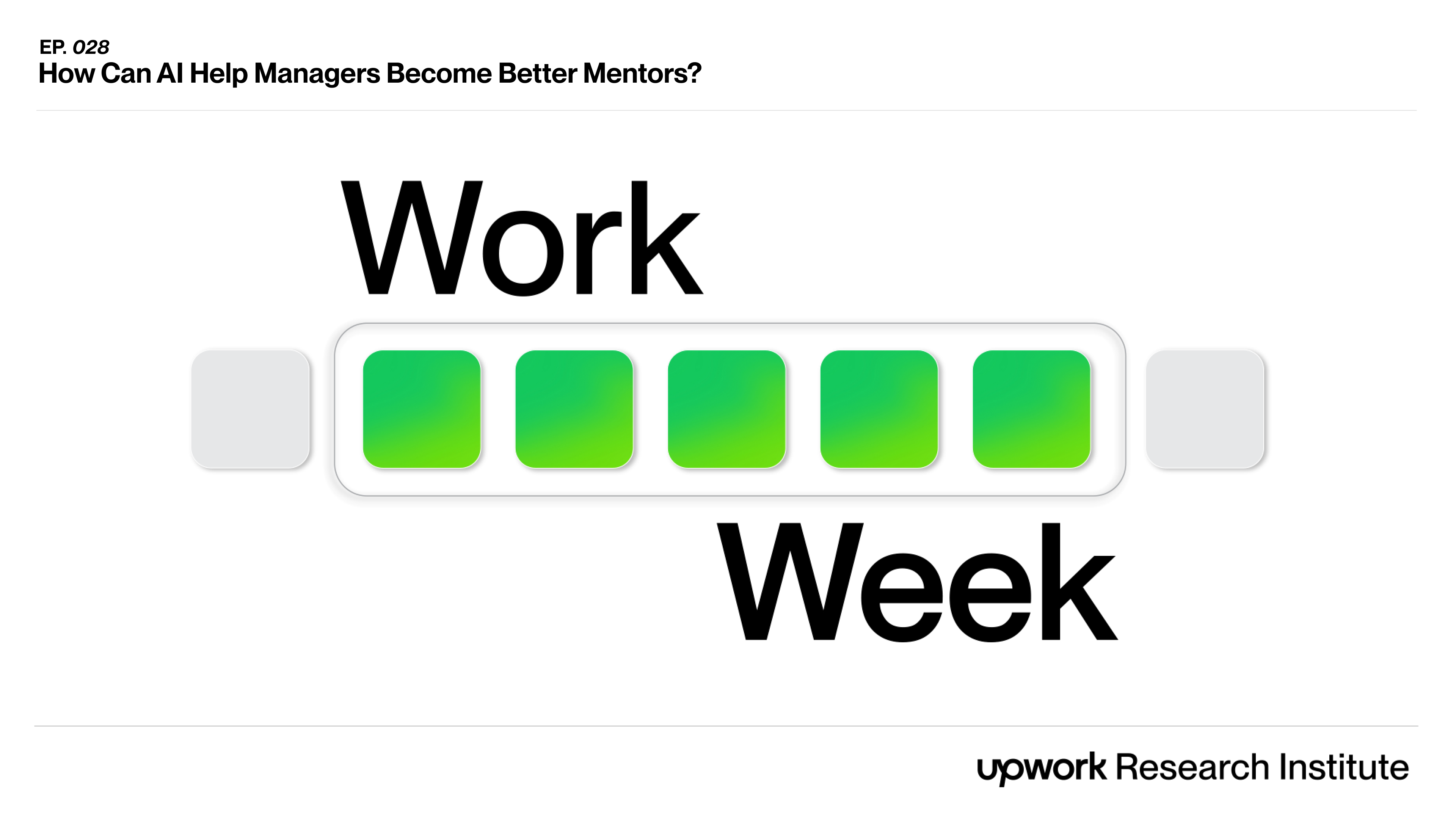


.png)

-p-500.jpg.png)

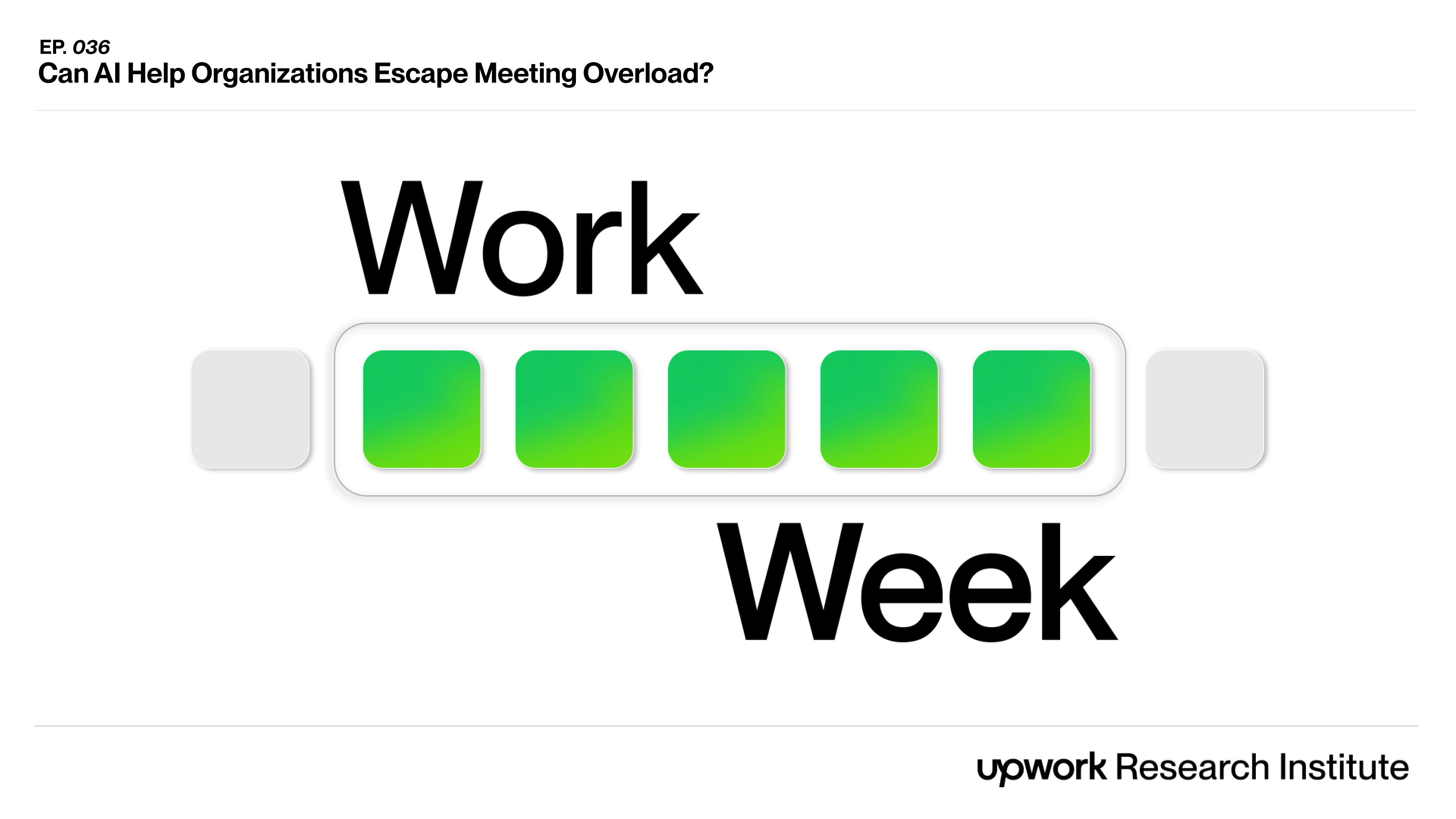

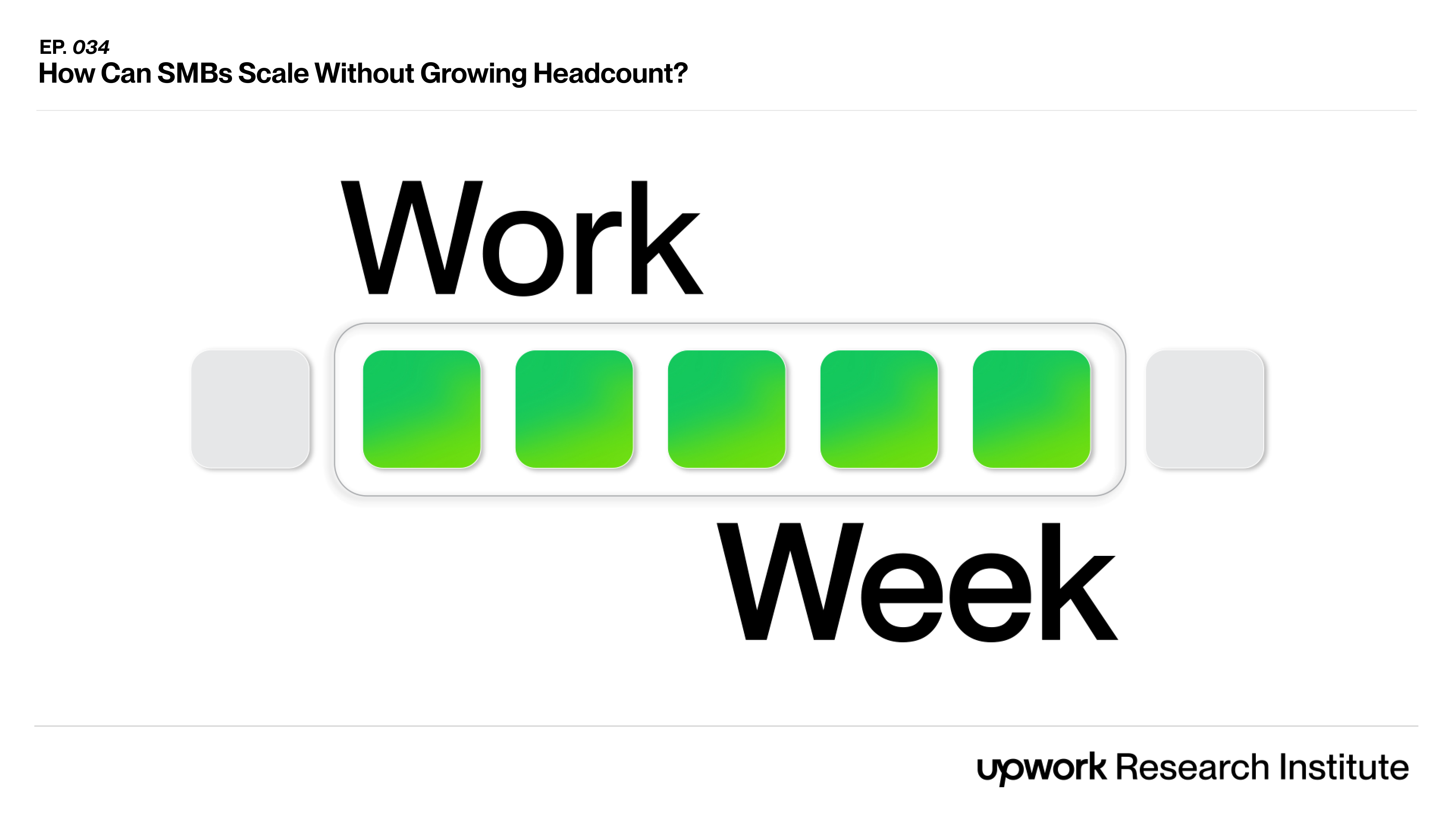
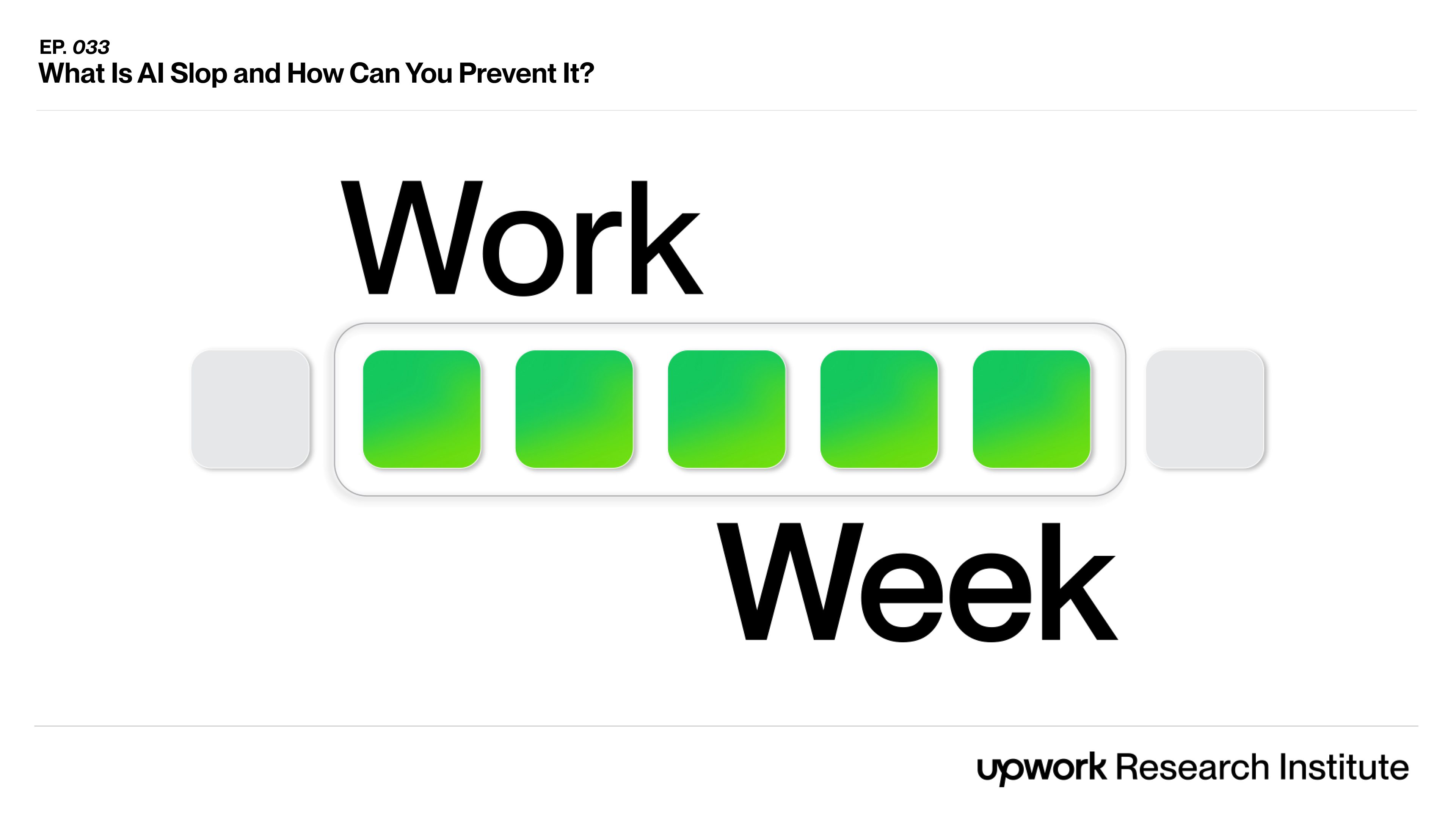
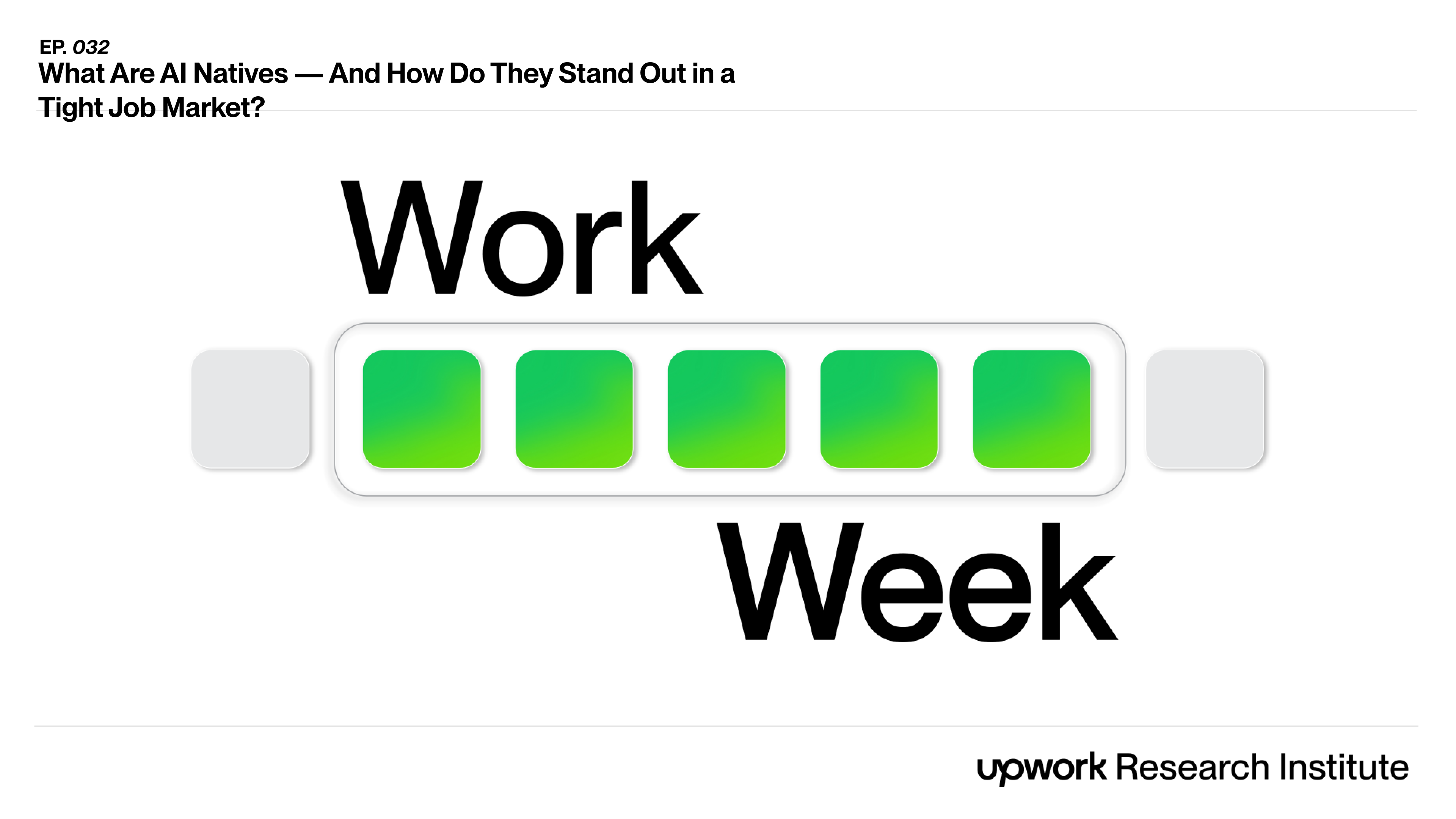
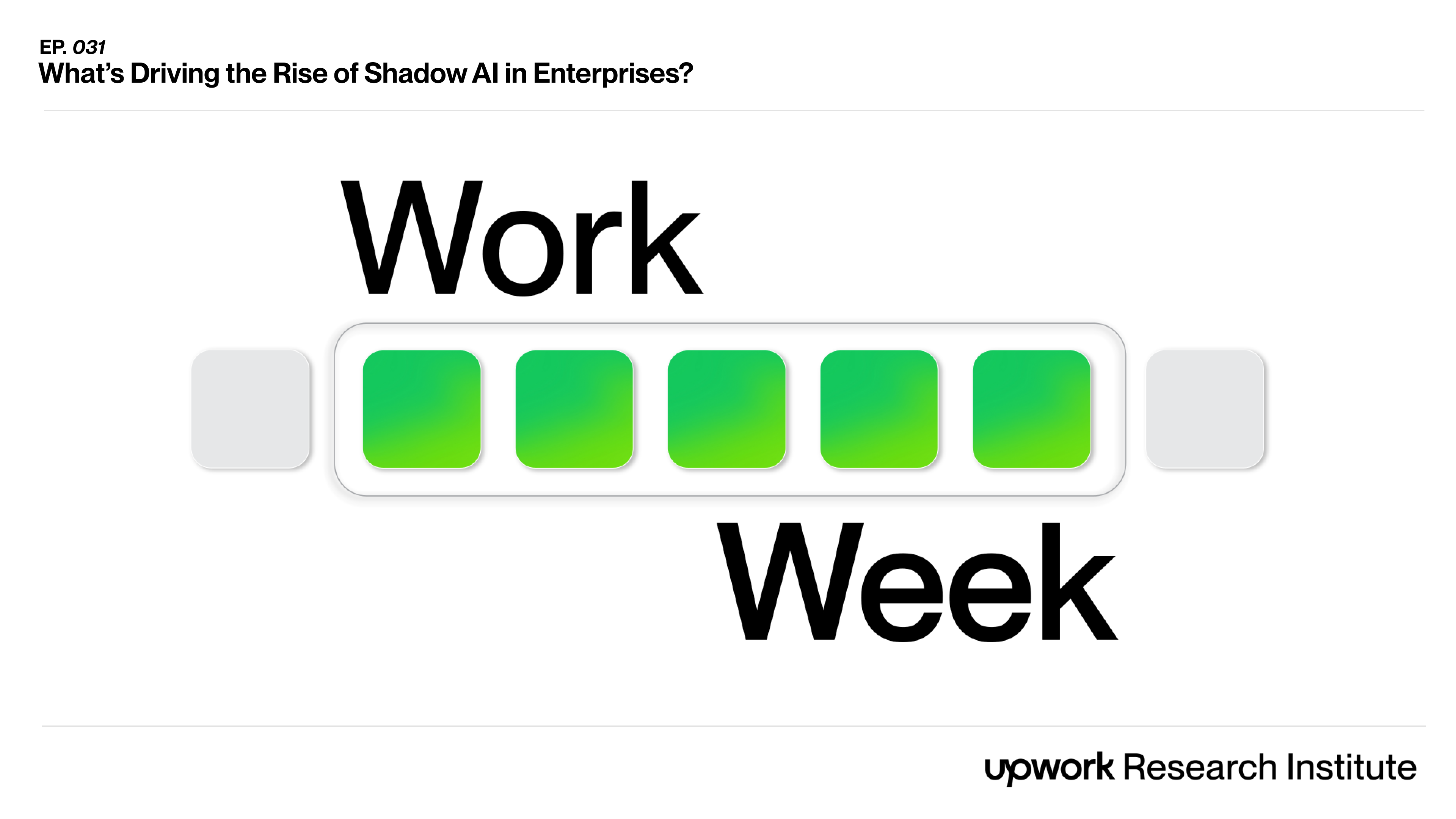
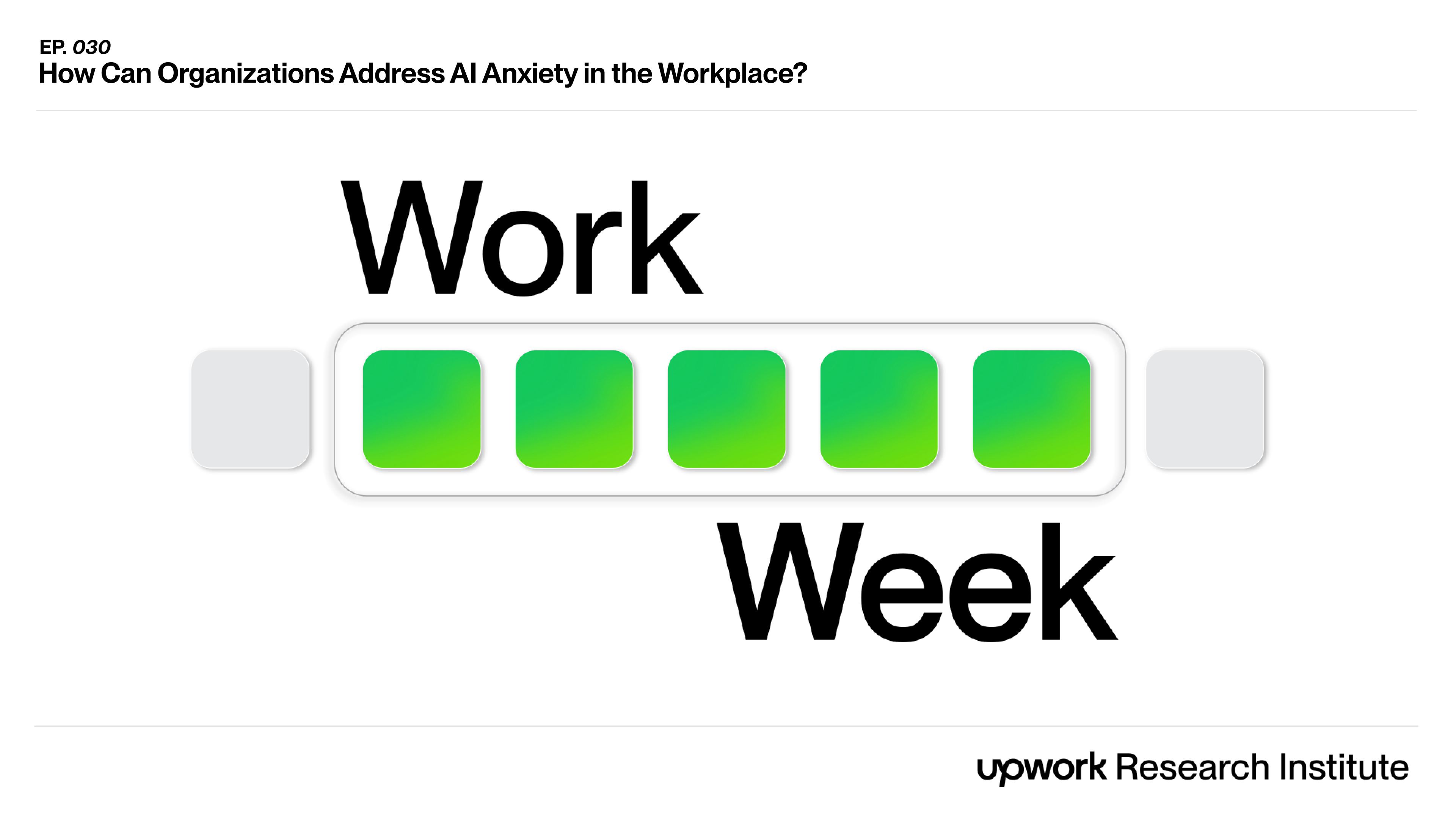
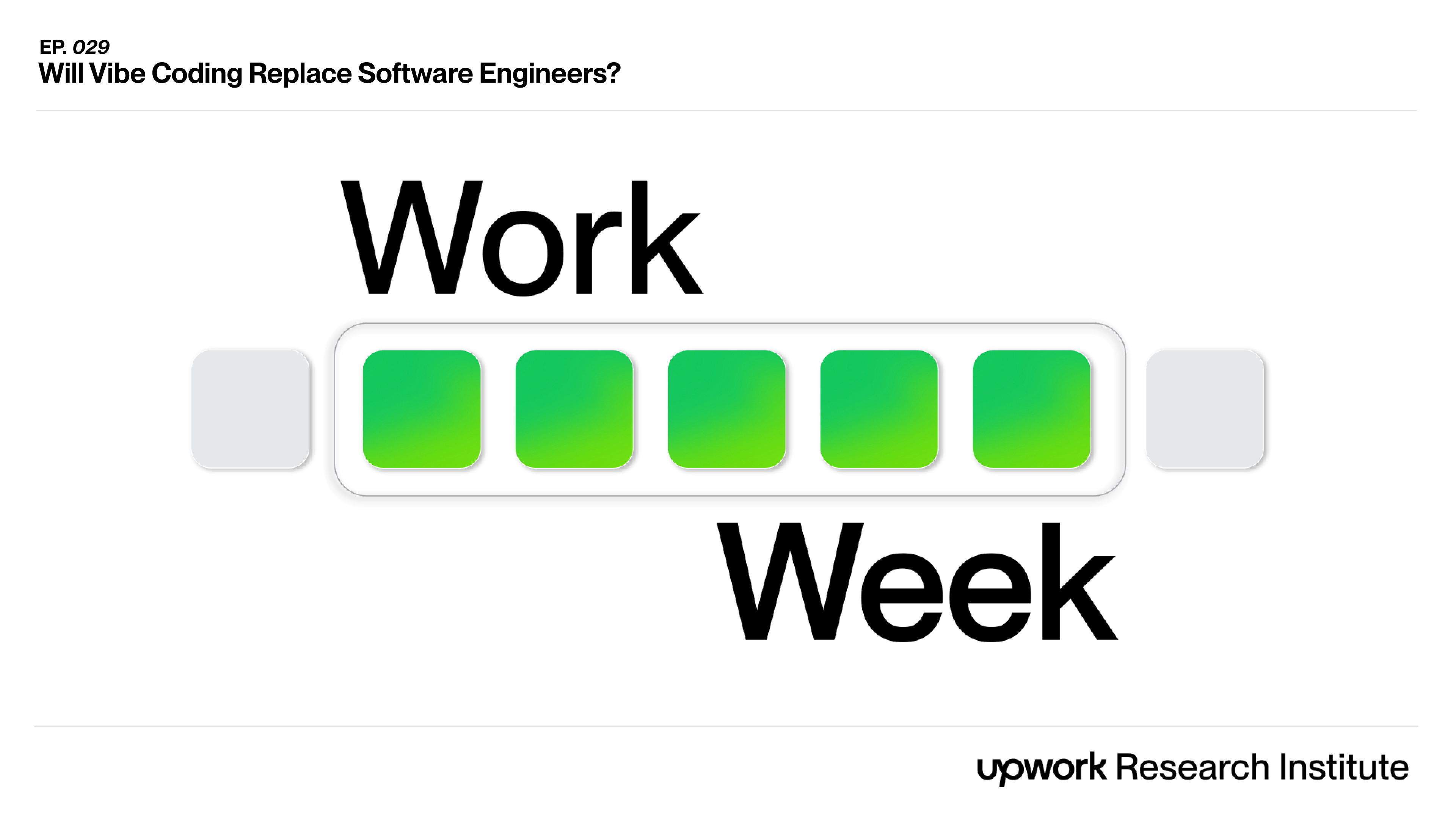

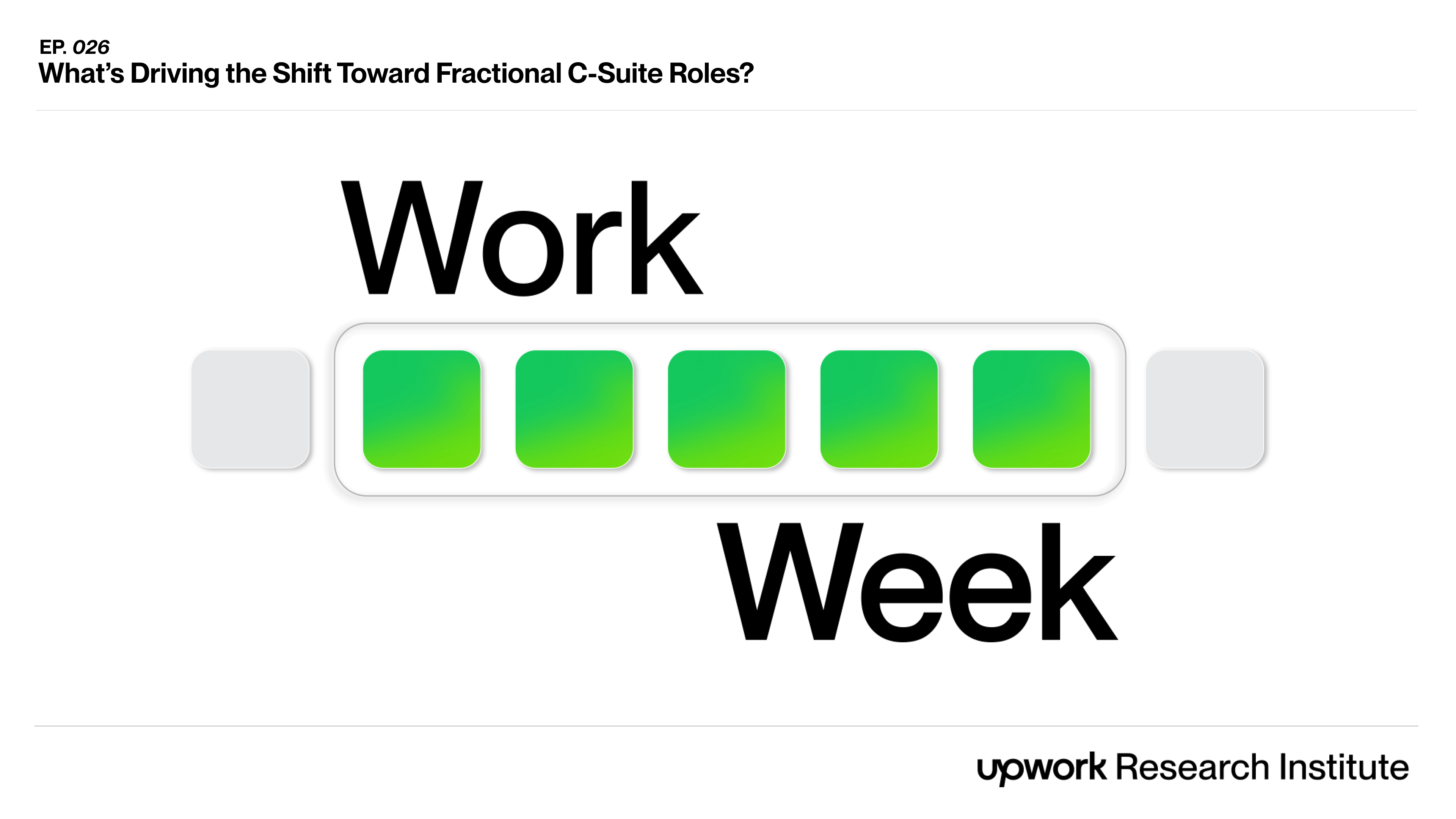
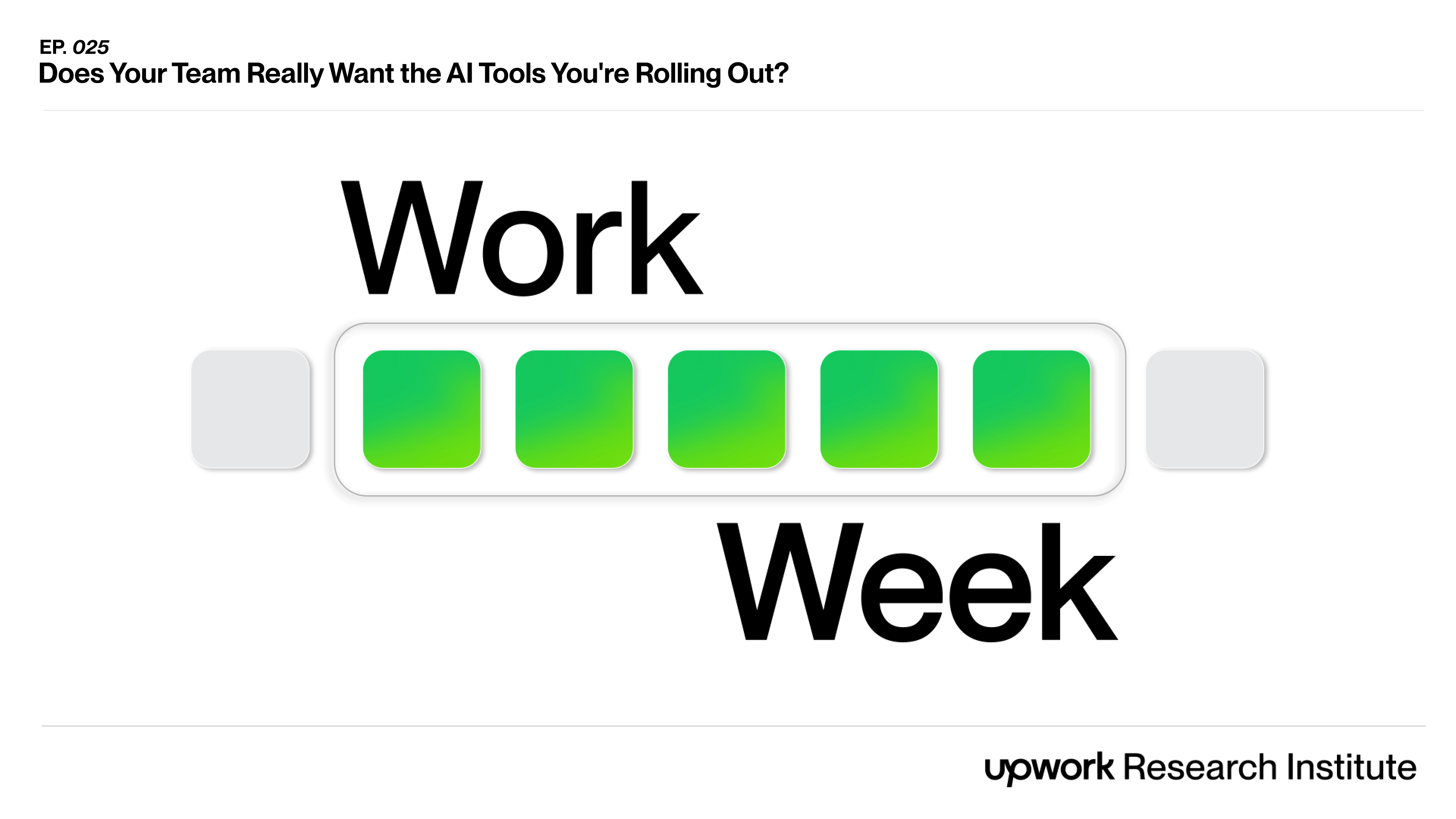
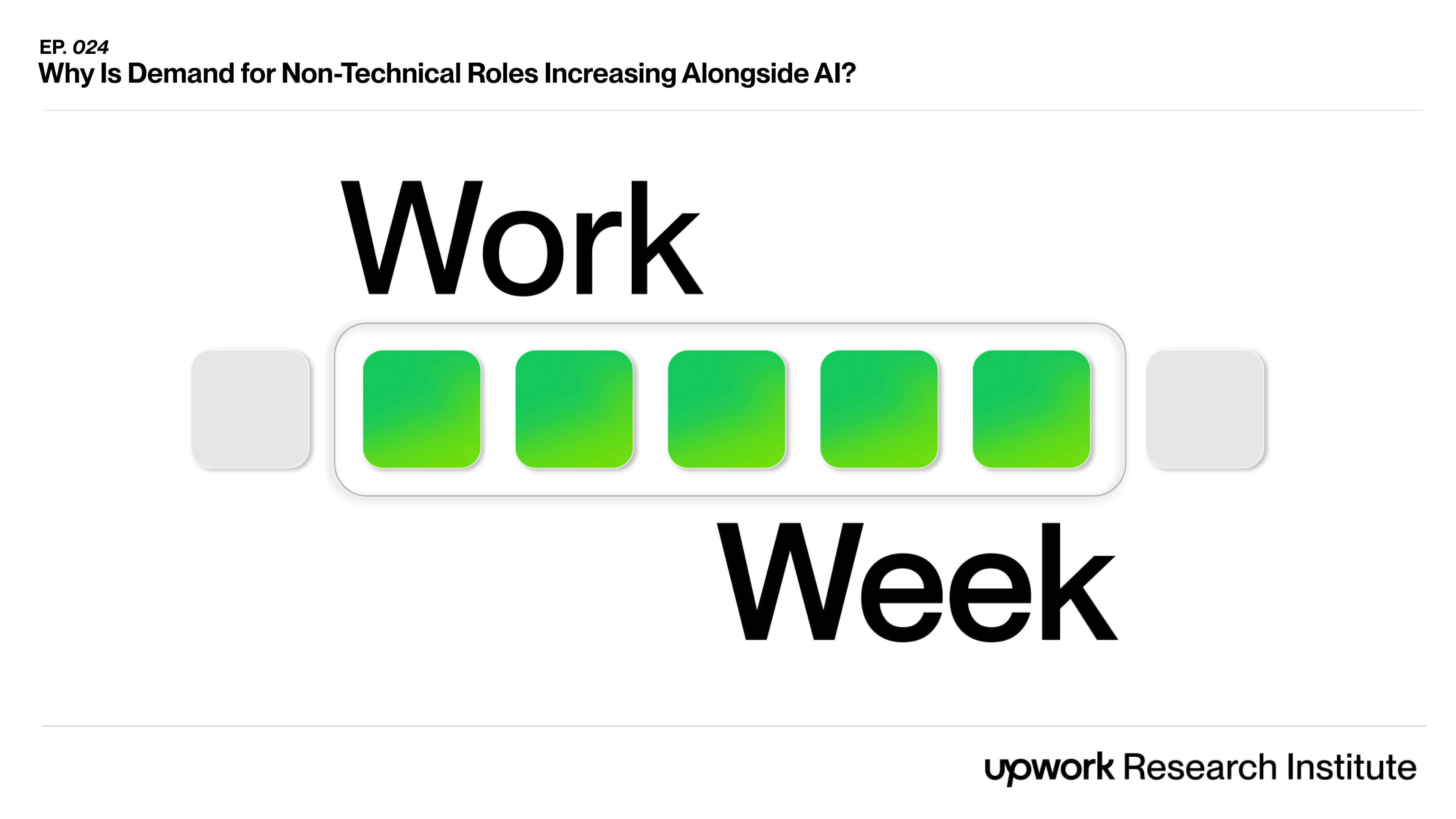
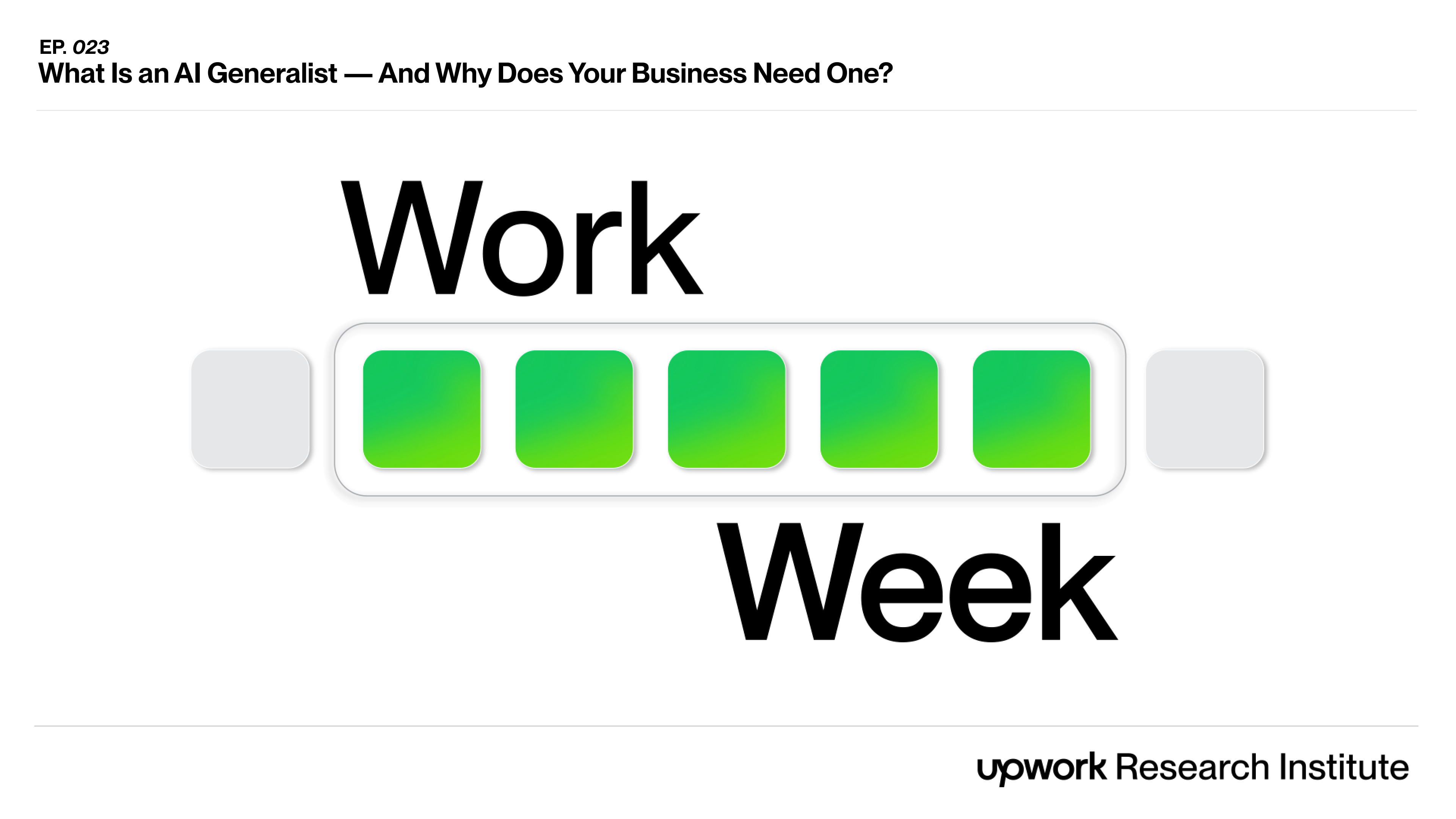
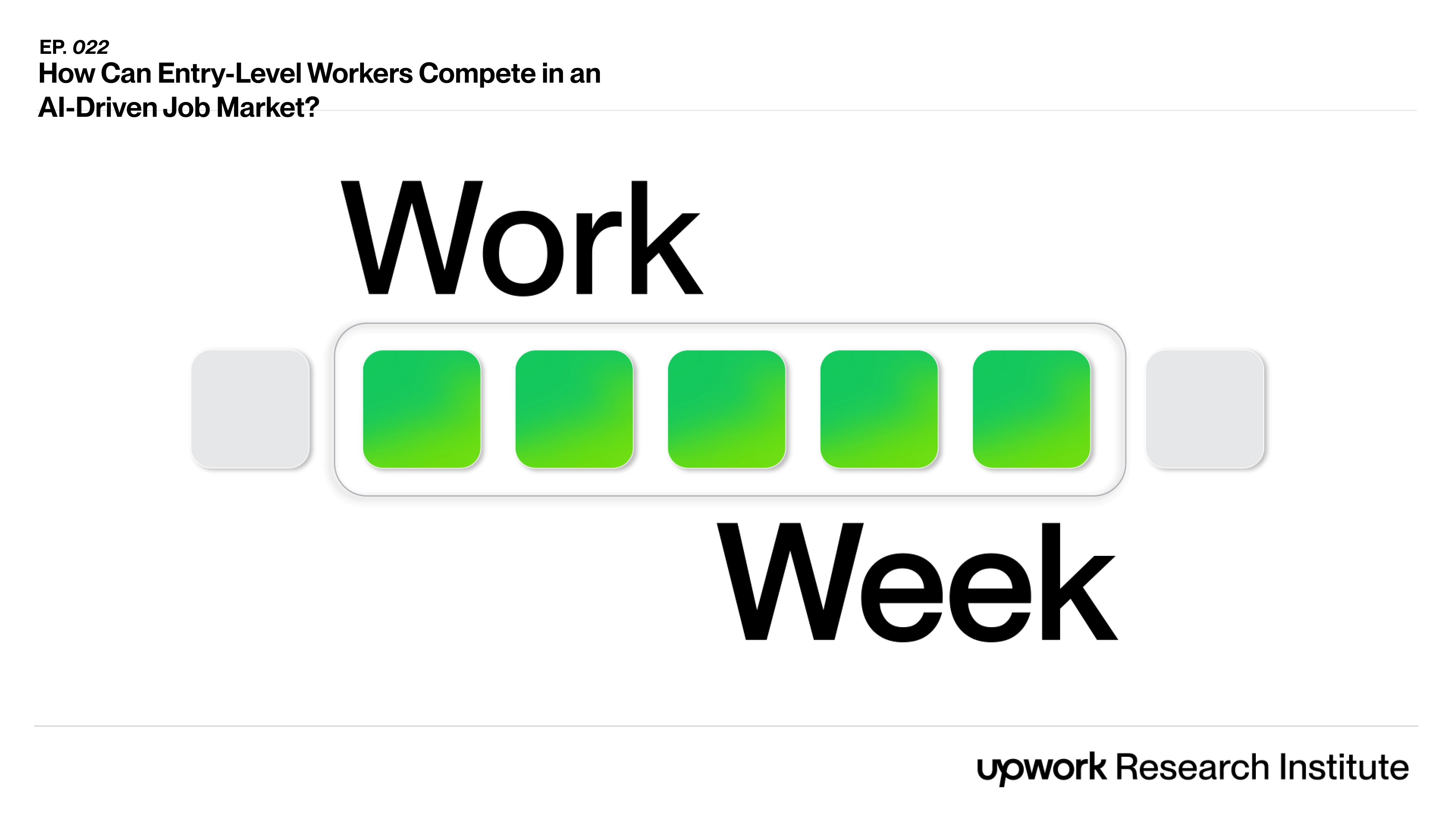

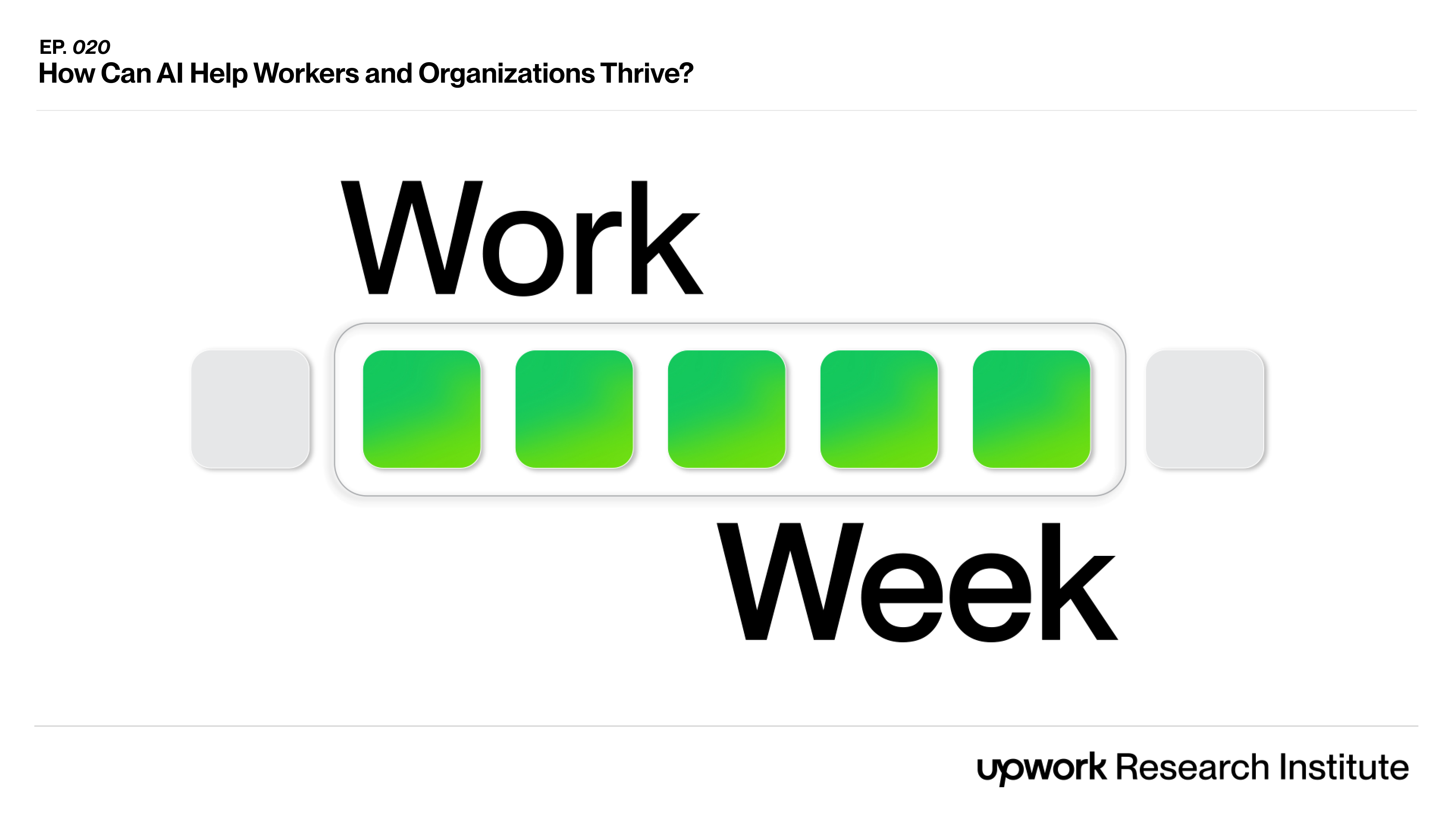
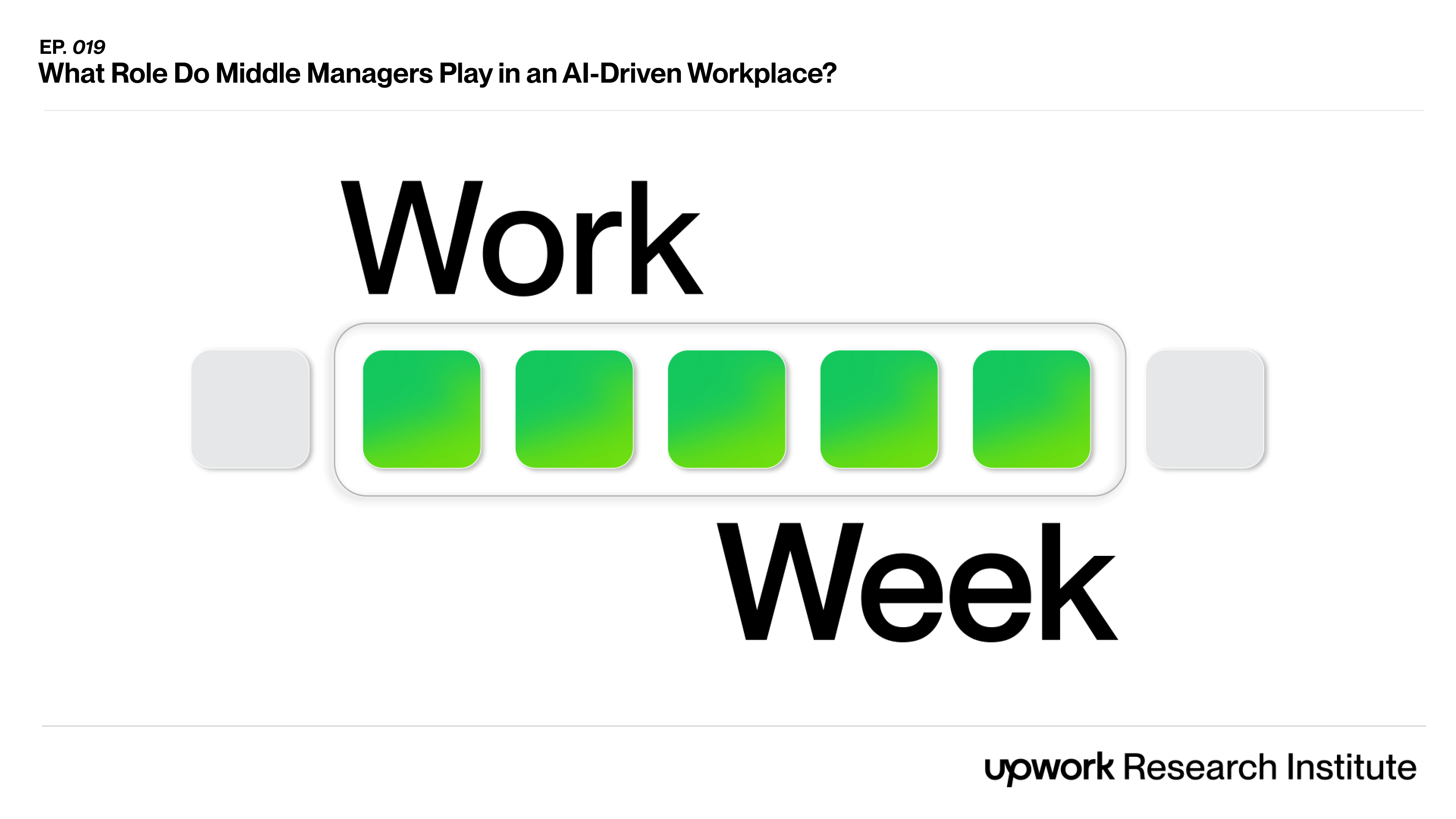
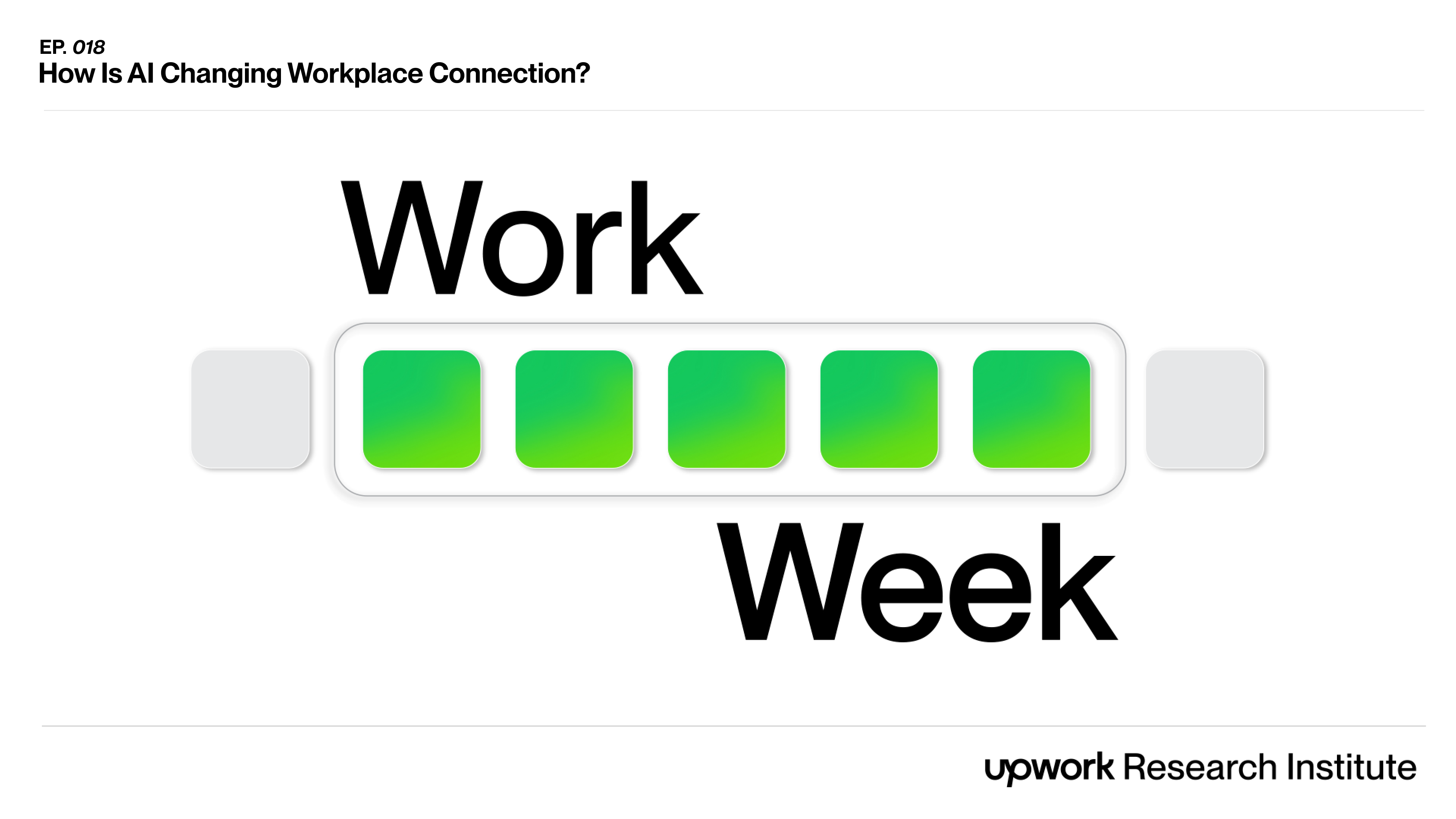

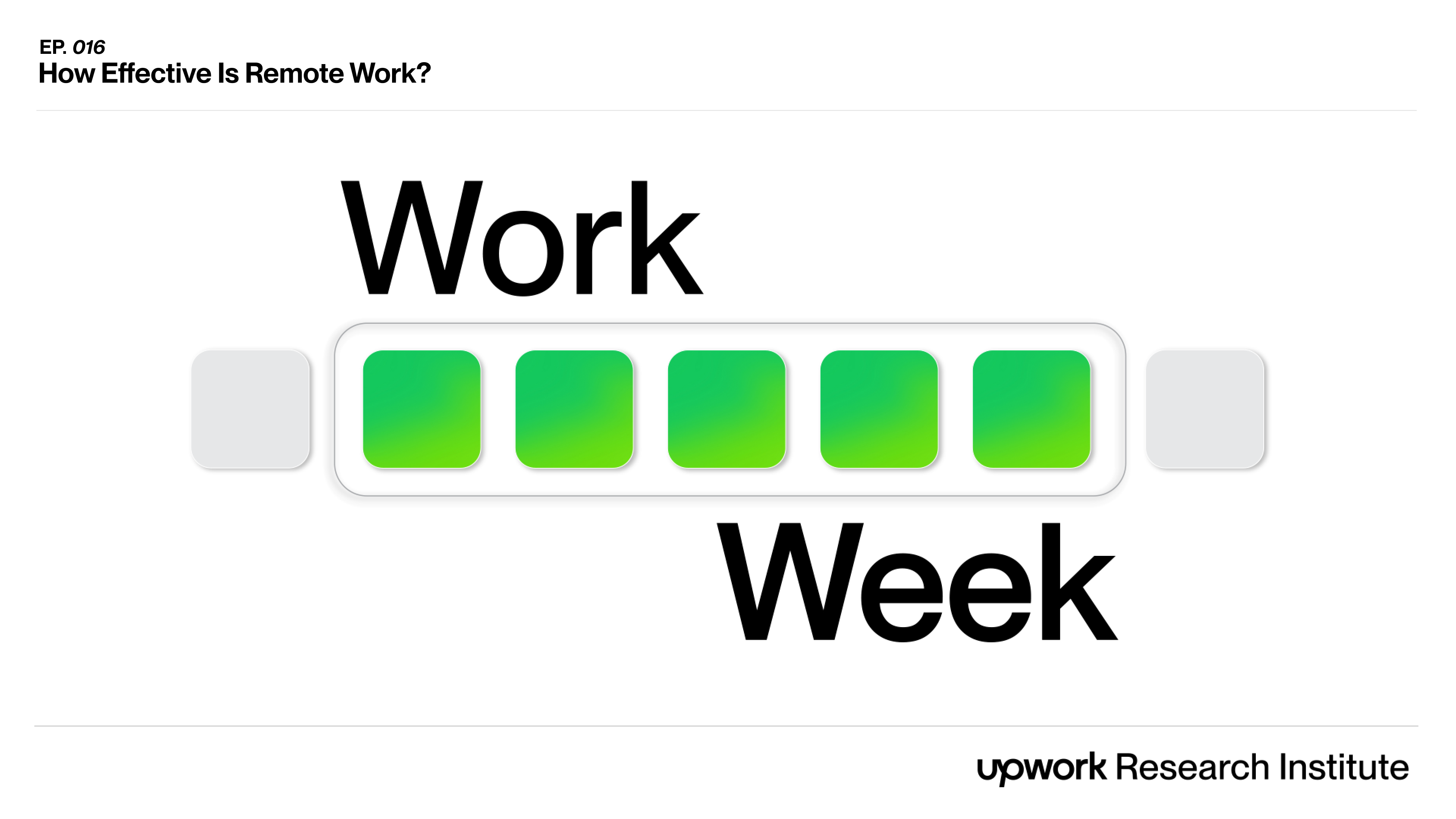
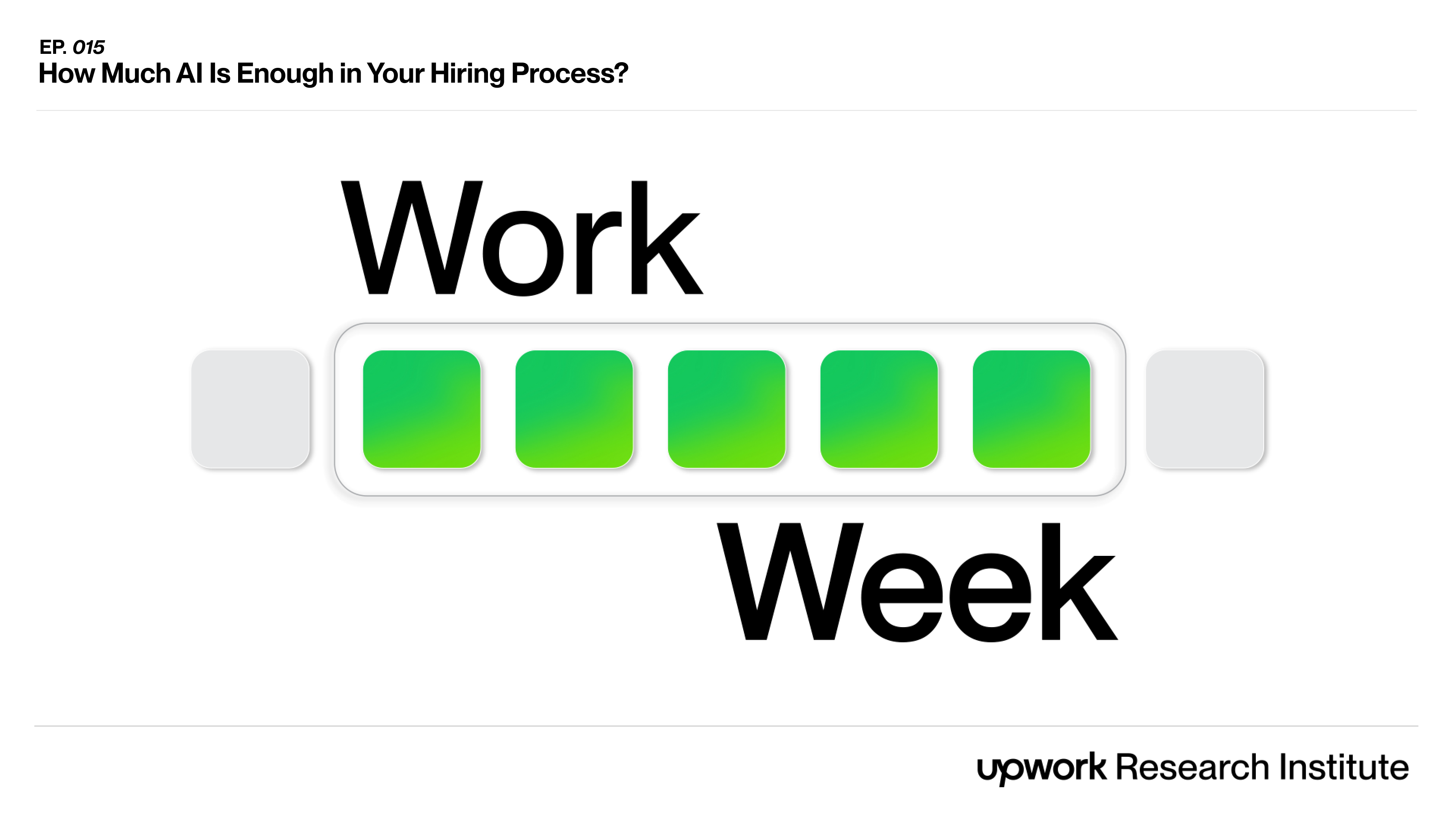

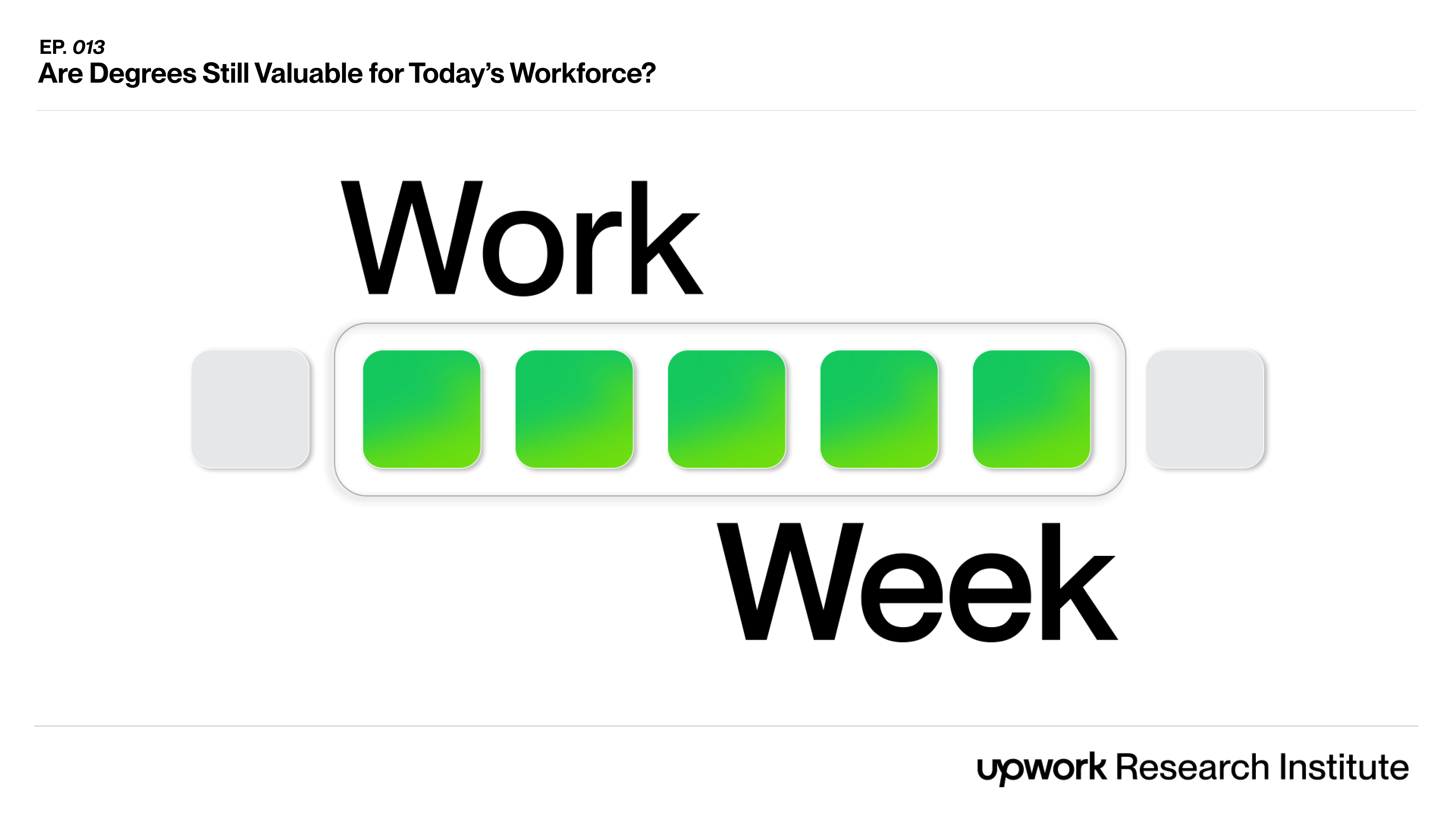
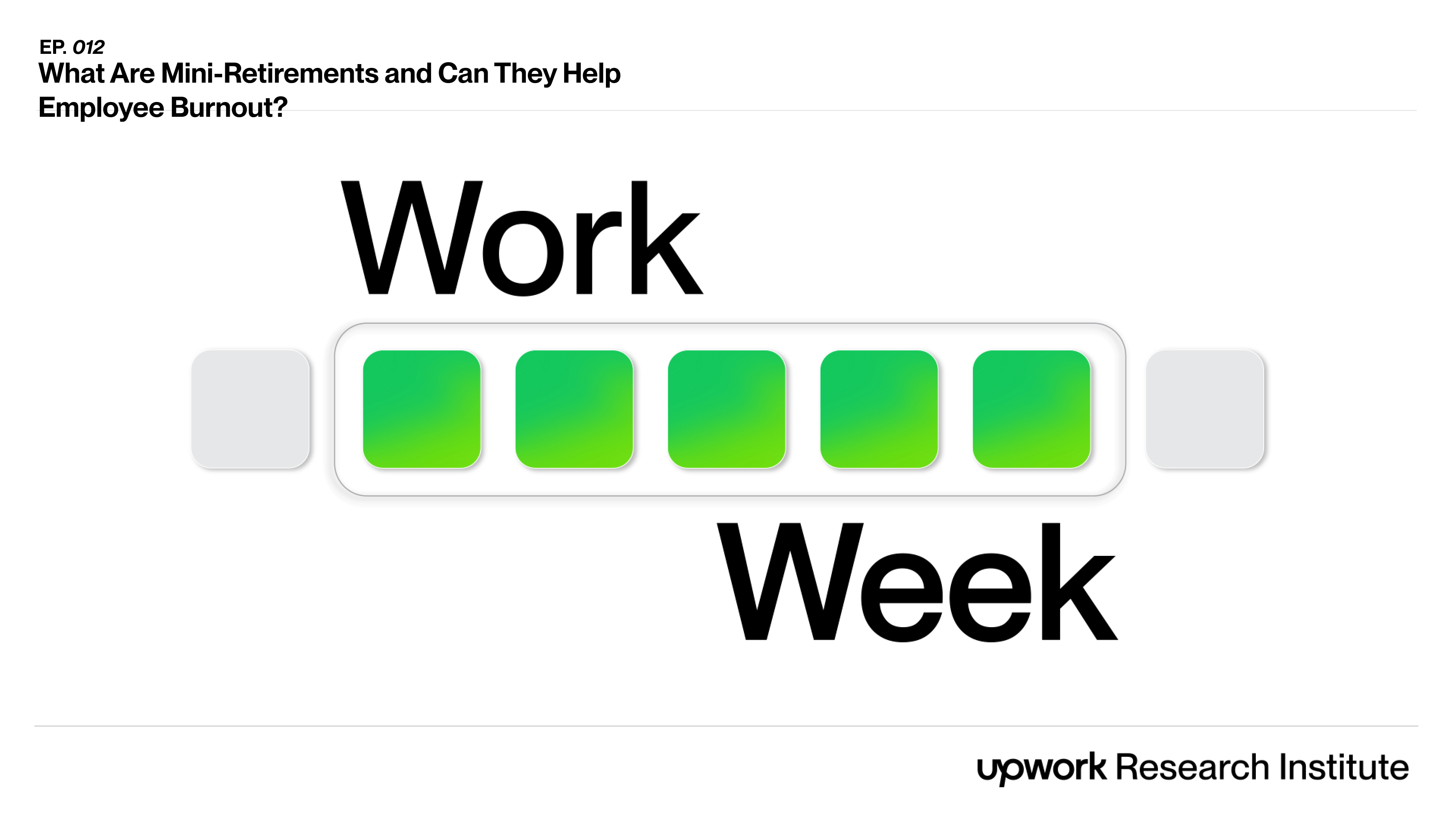
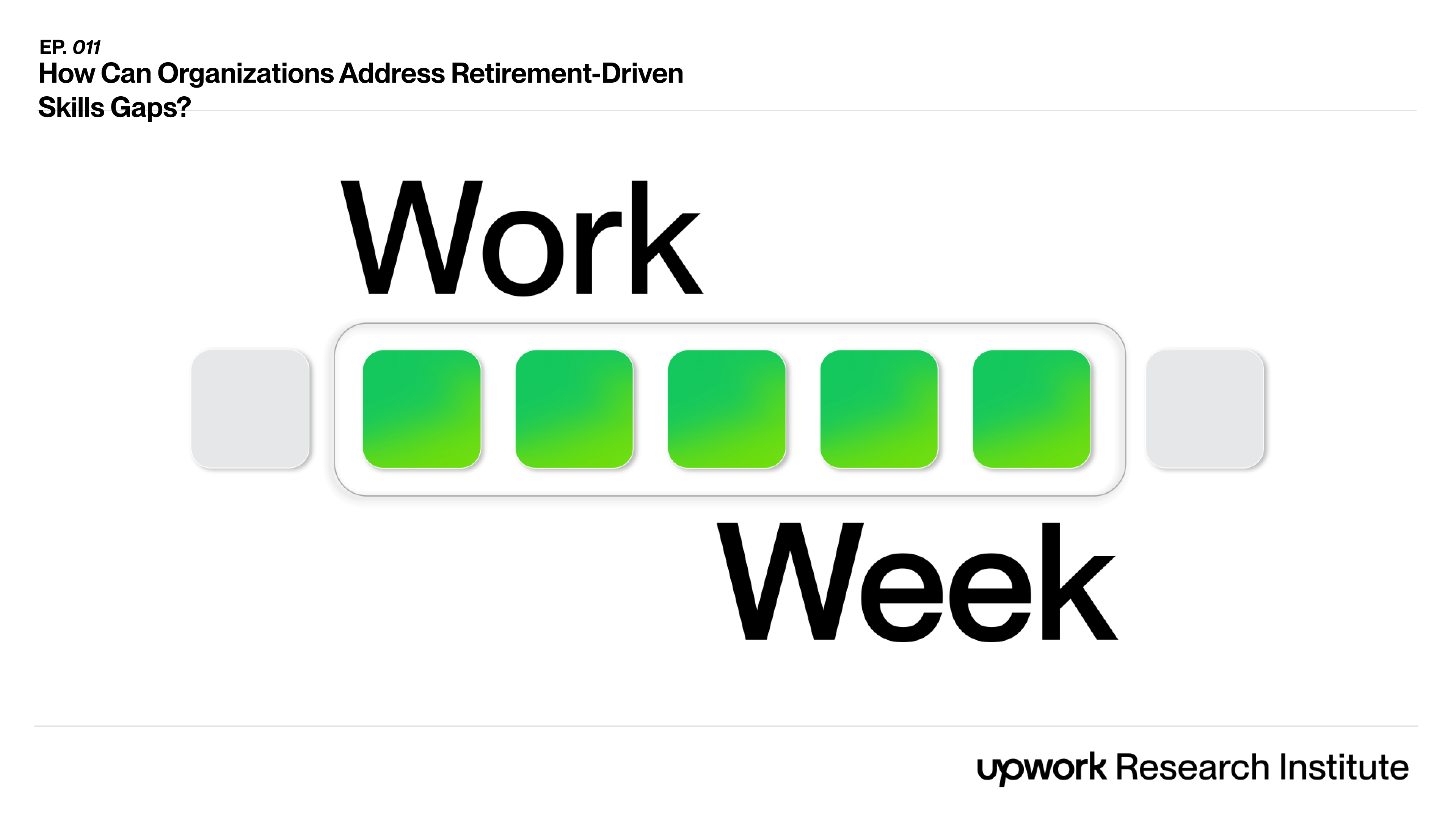
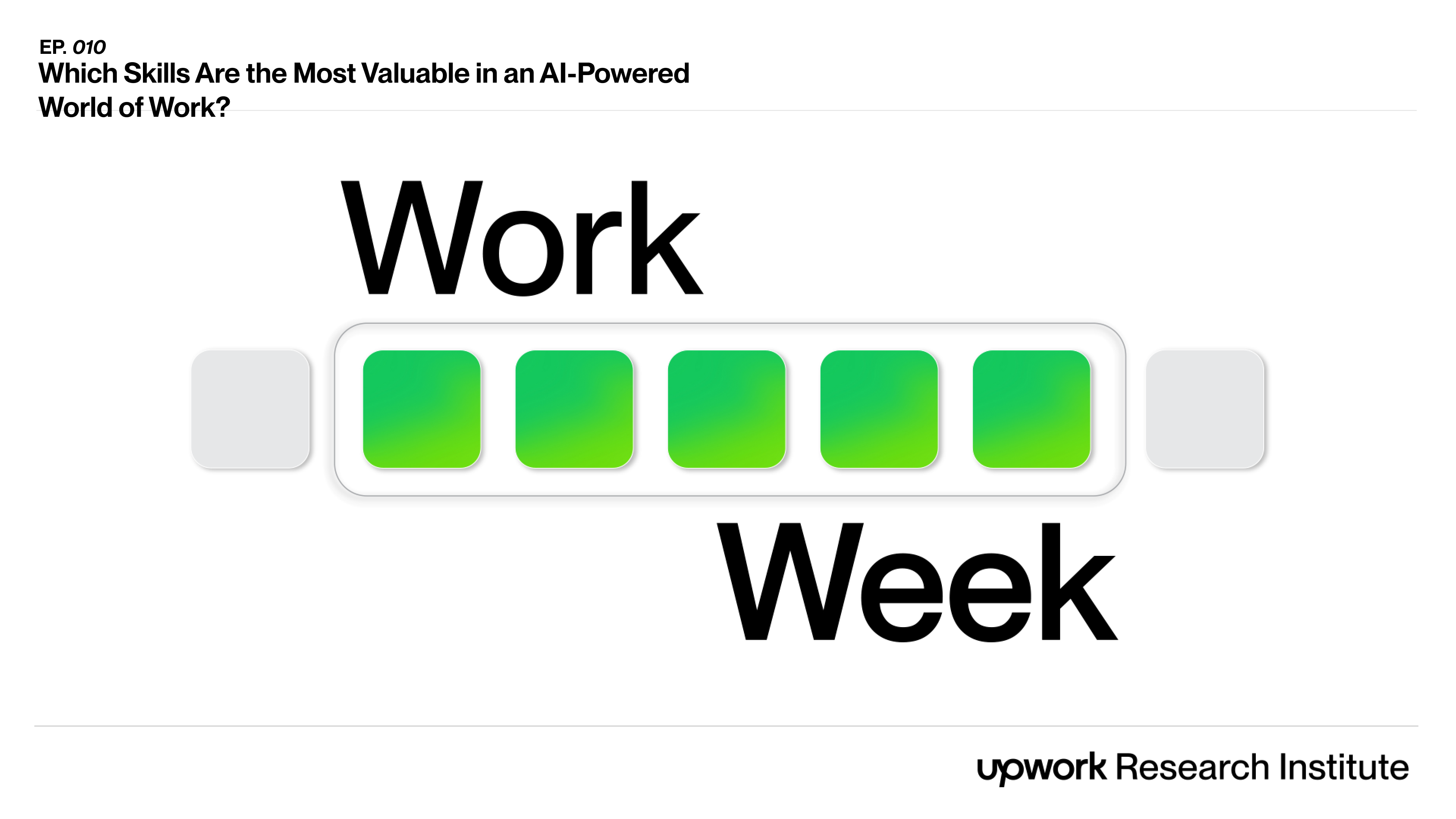
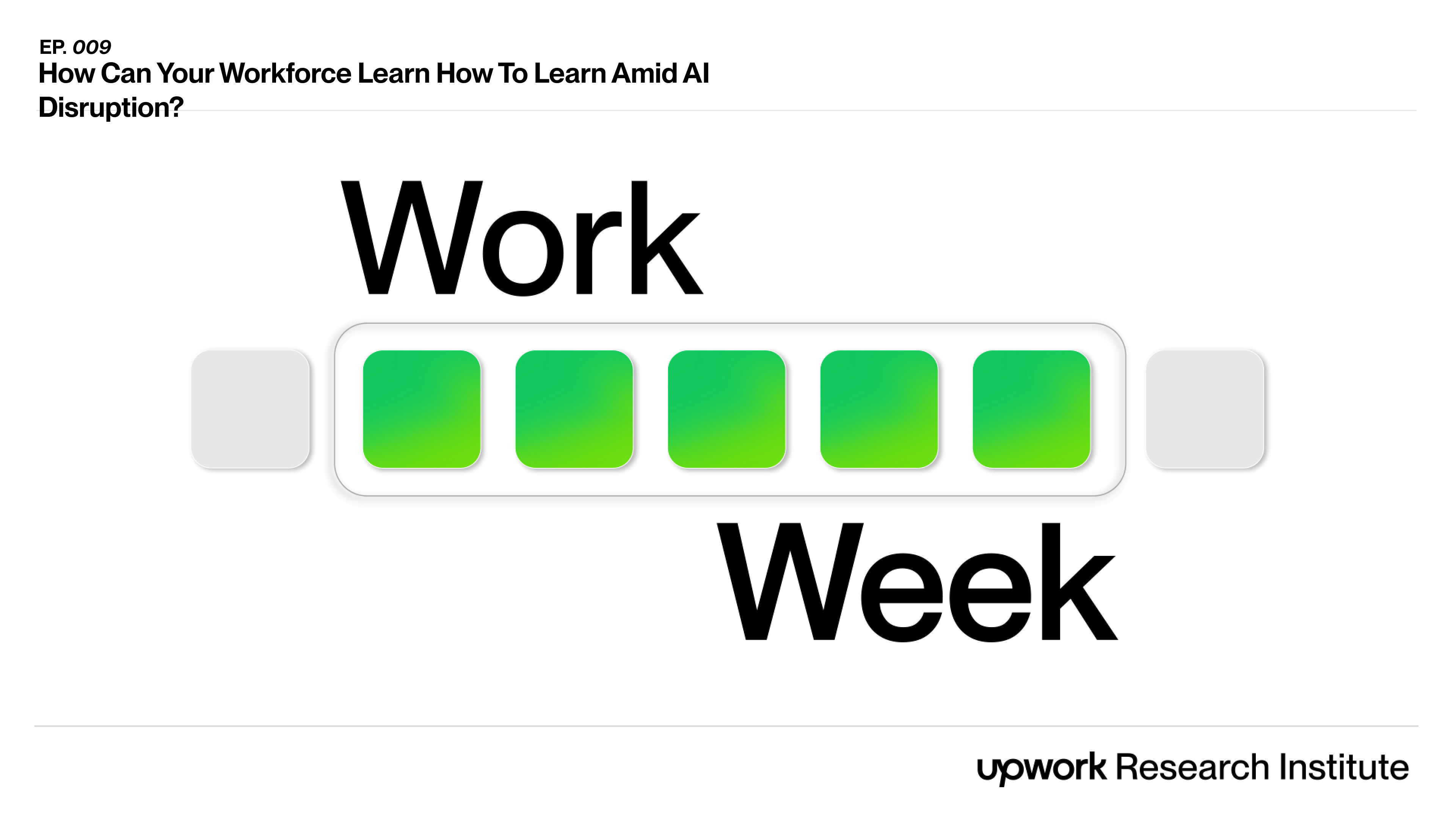
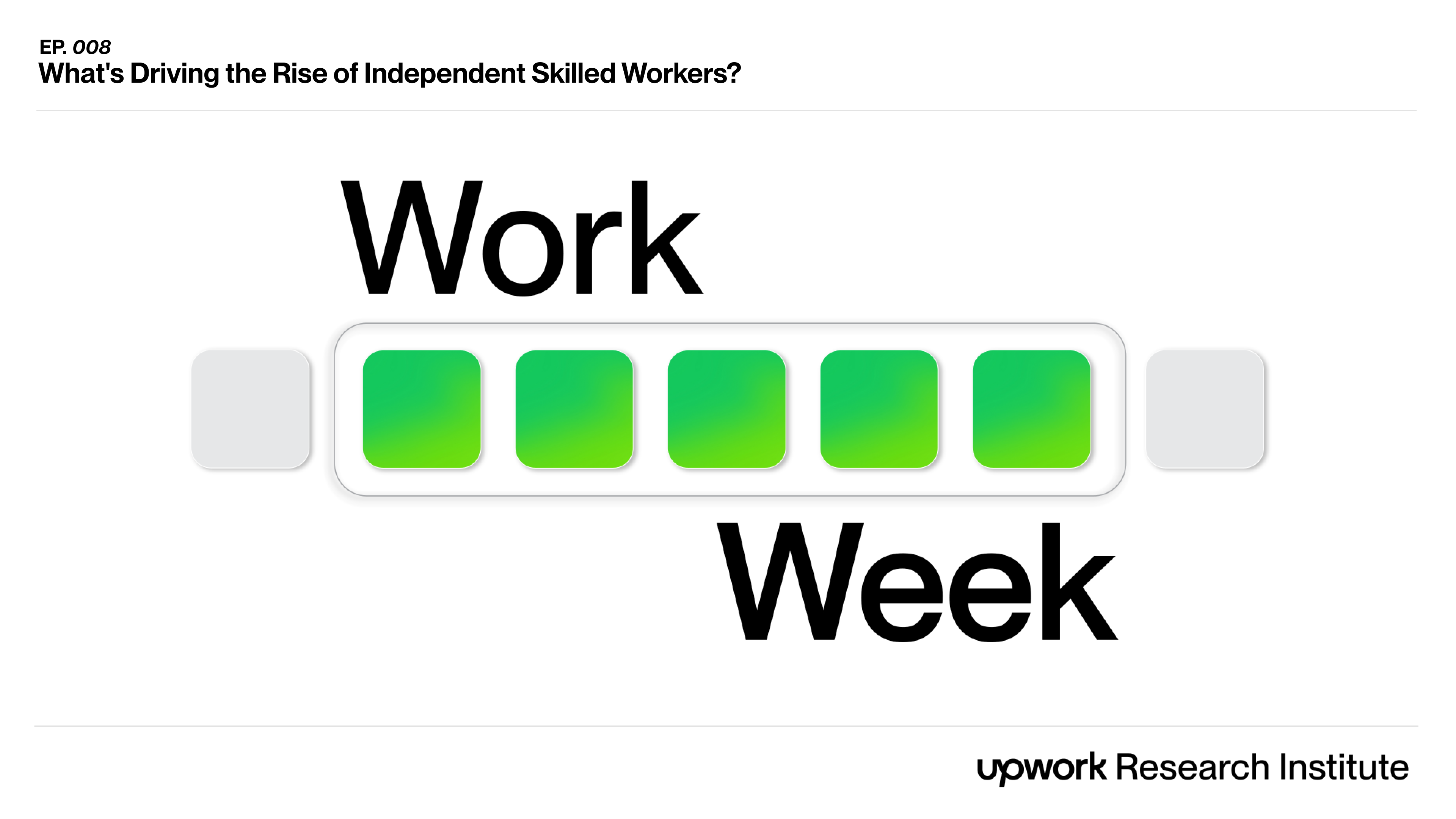
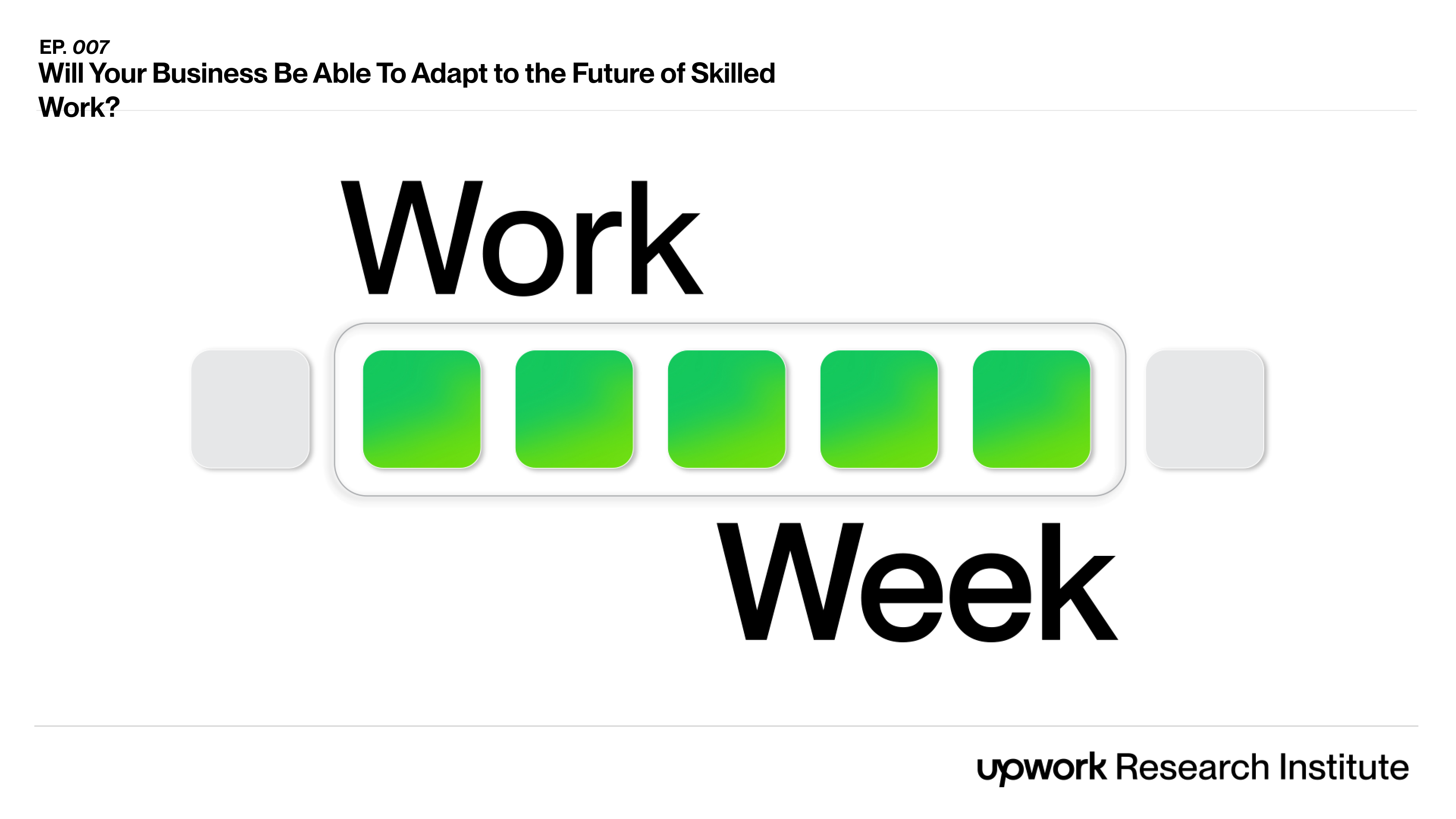
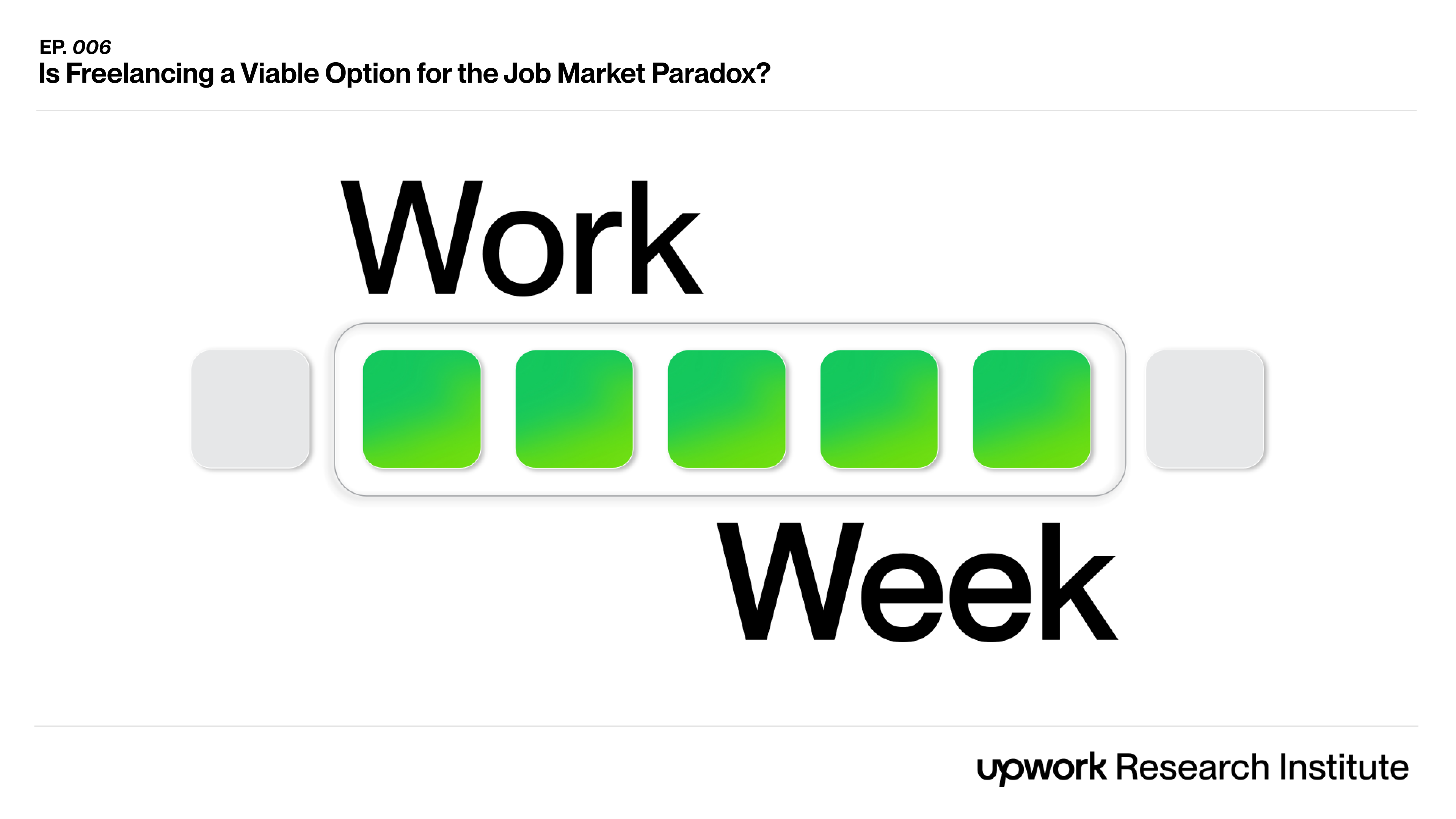
.png)
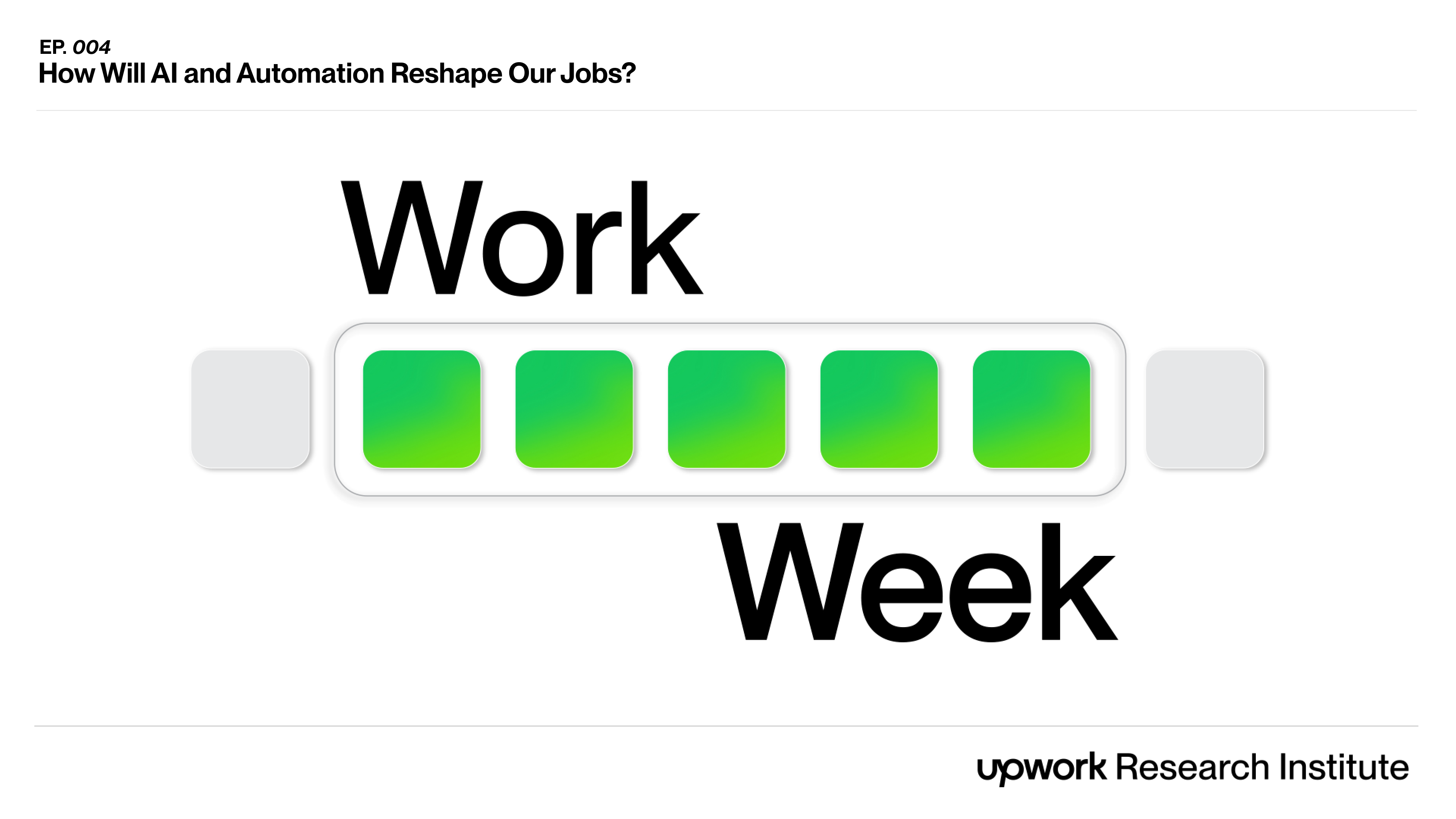

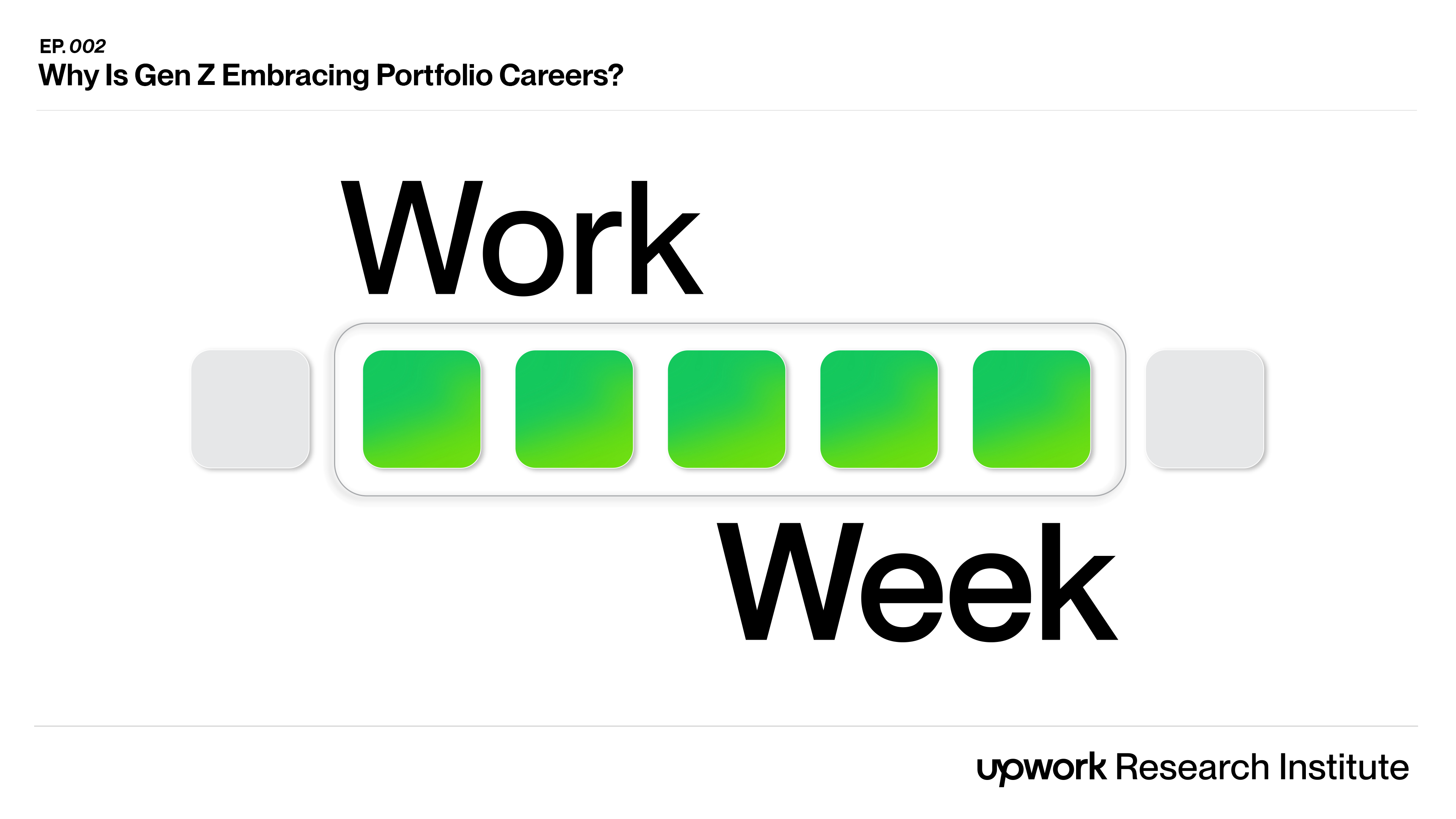
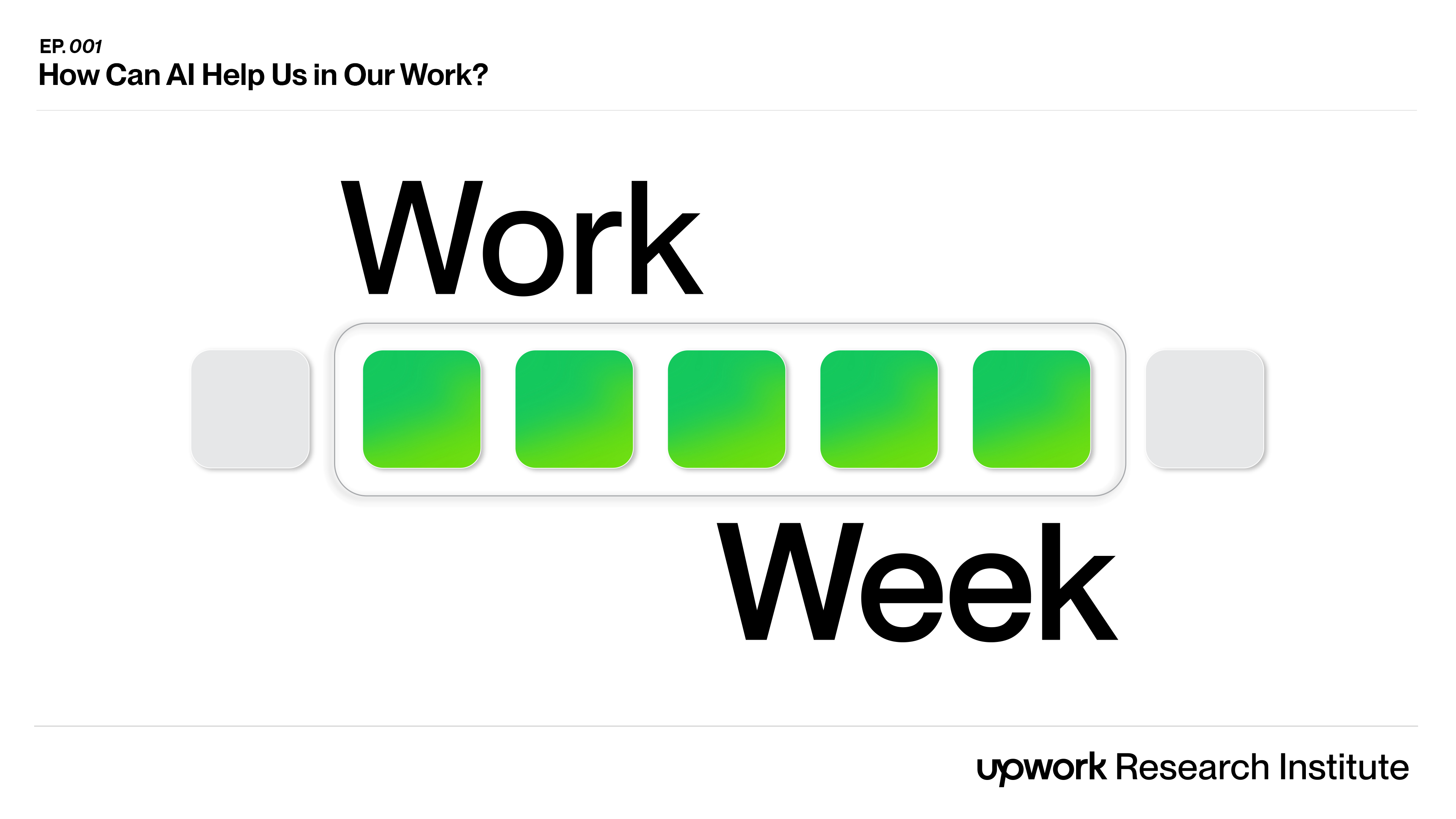
.jpg)